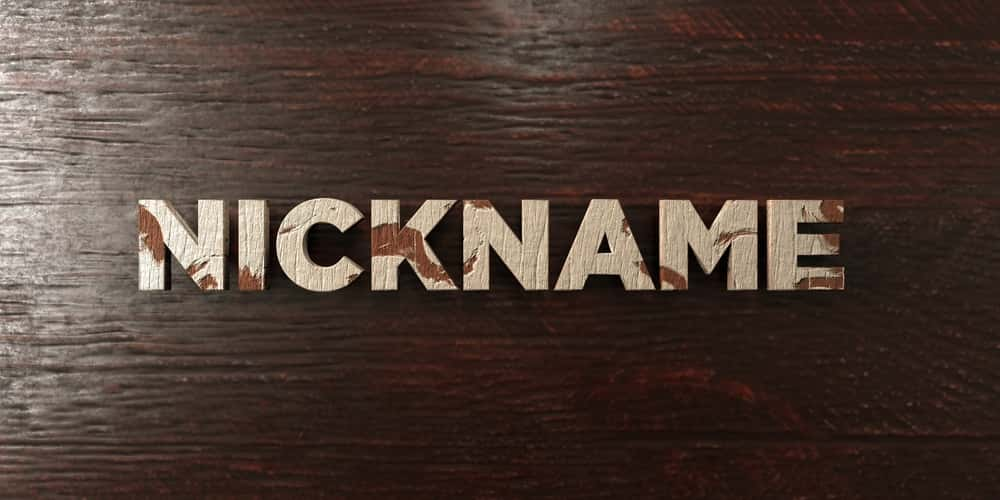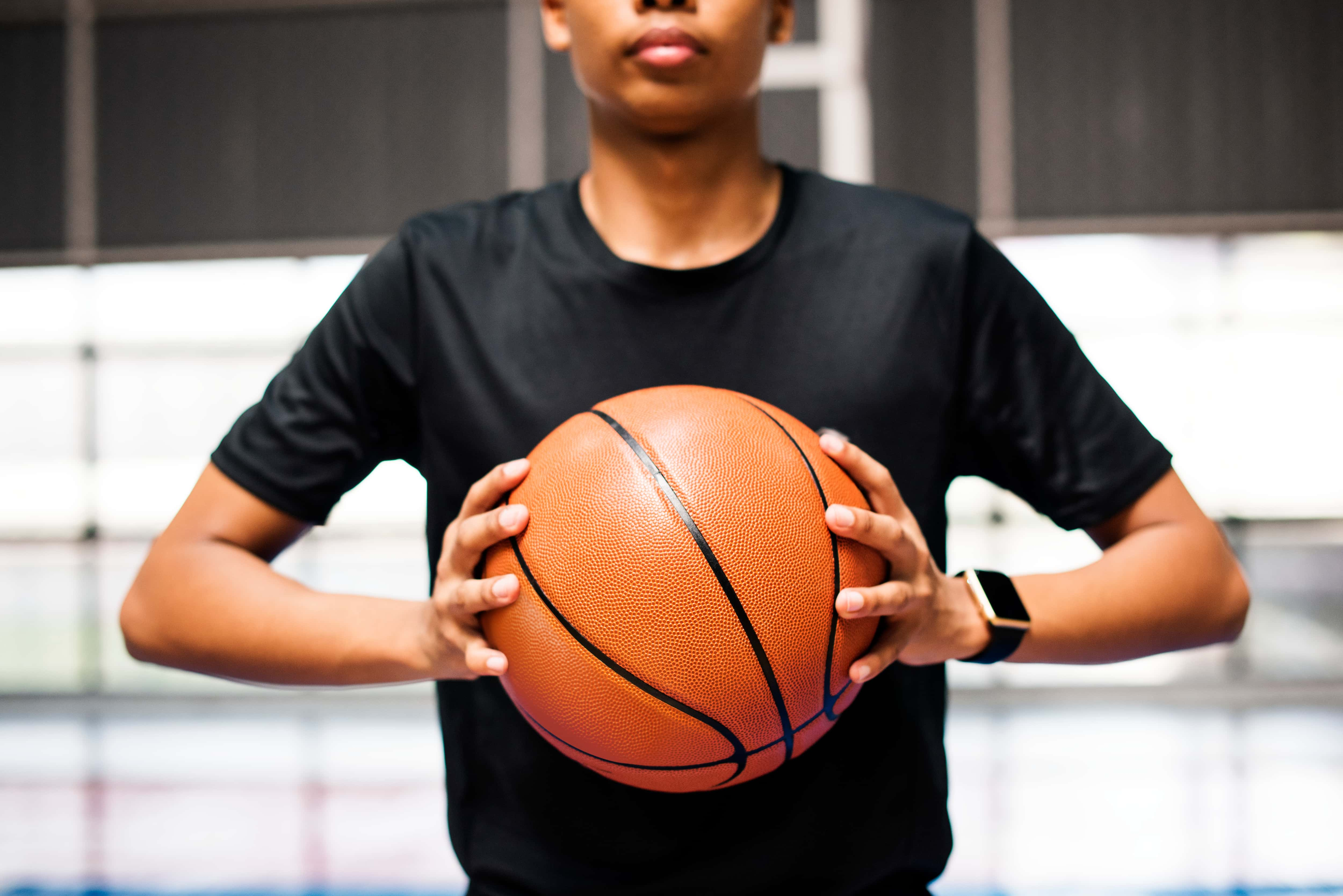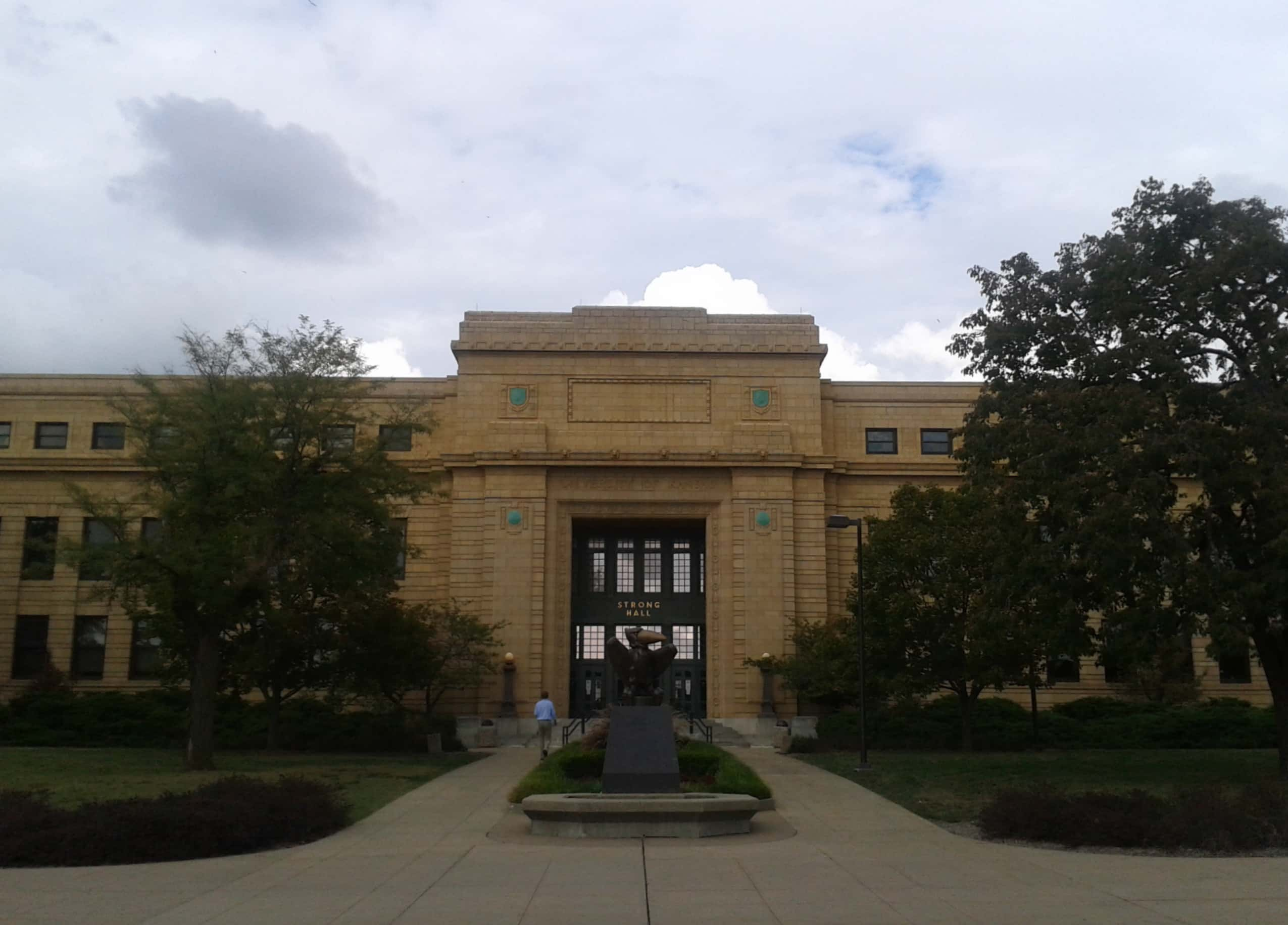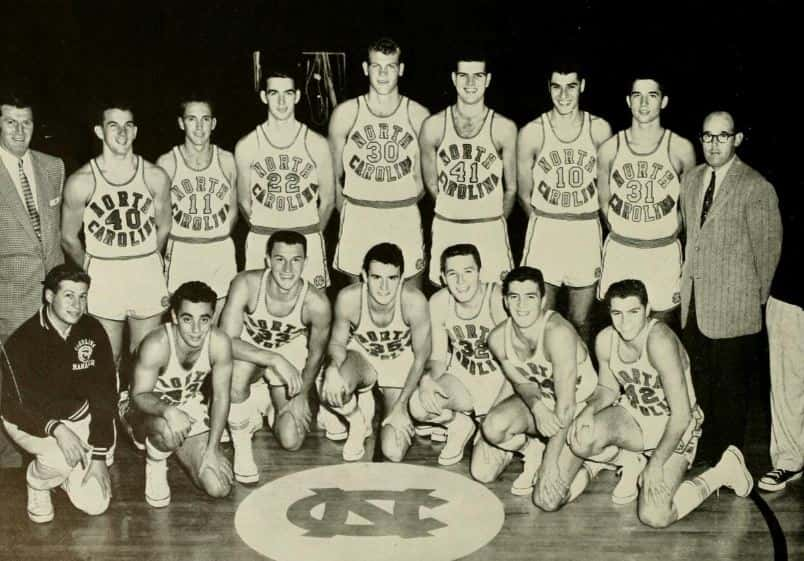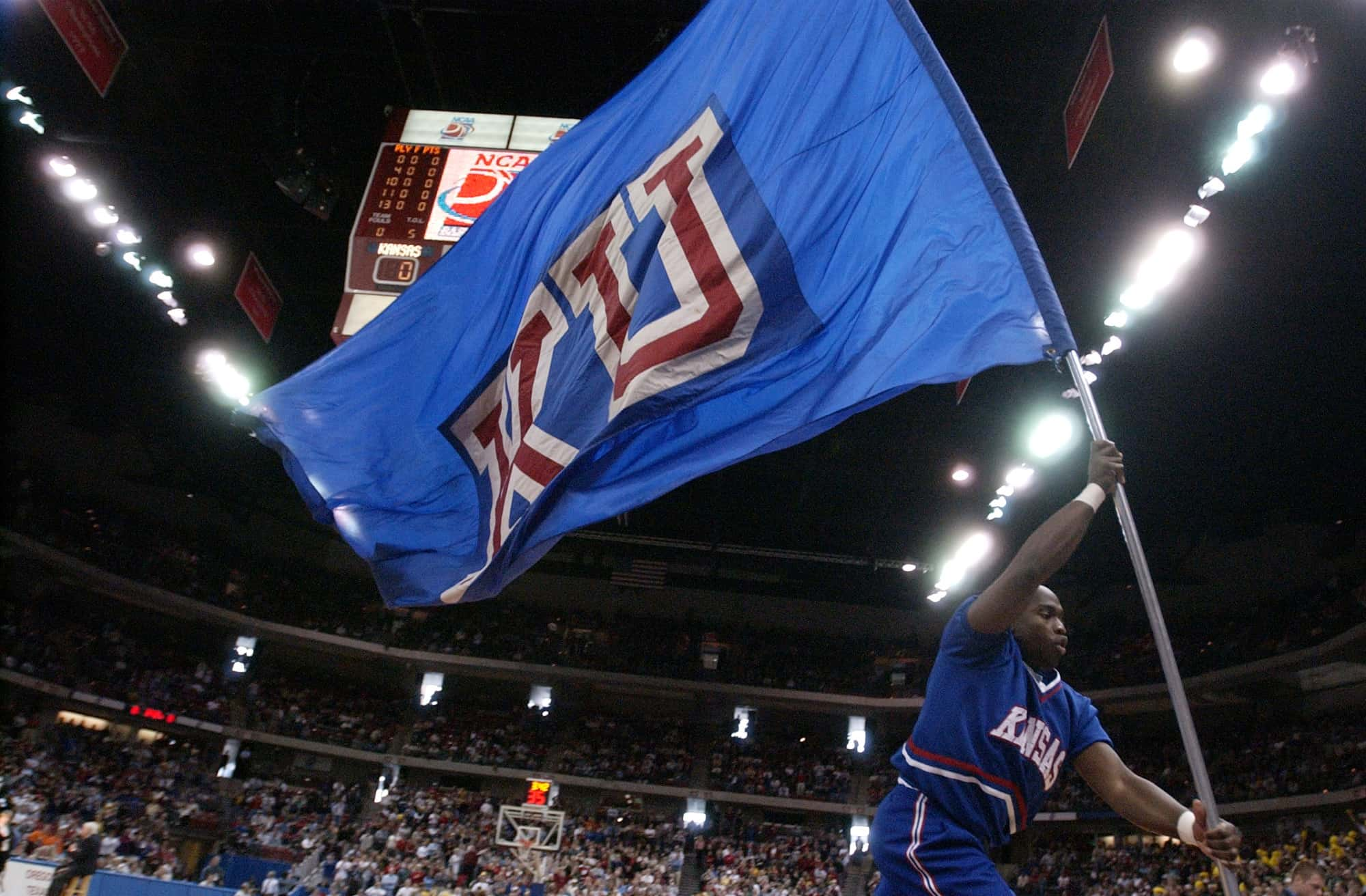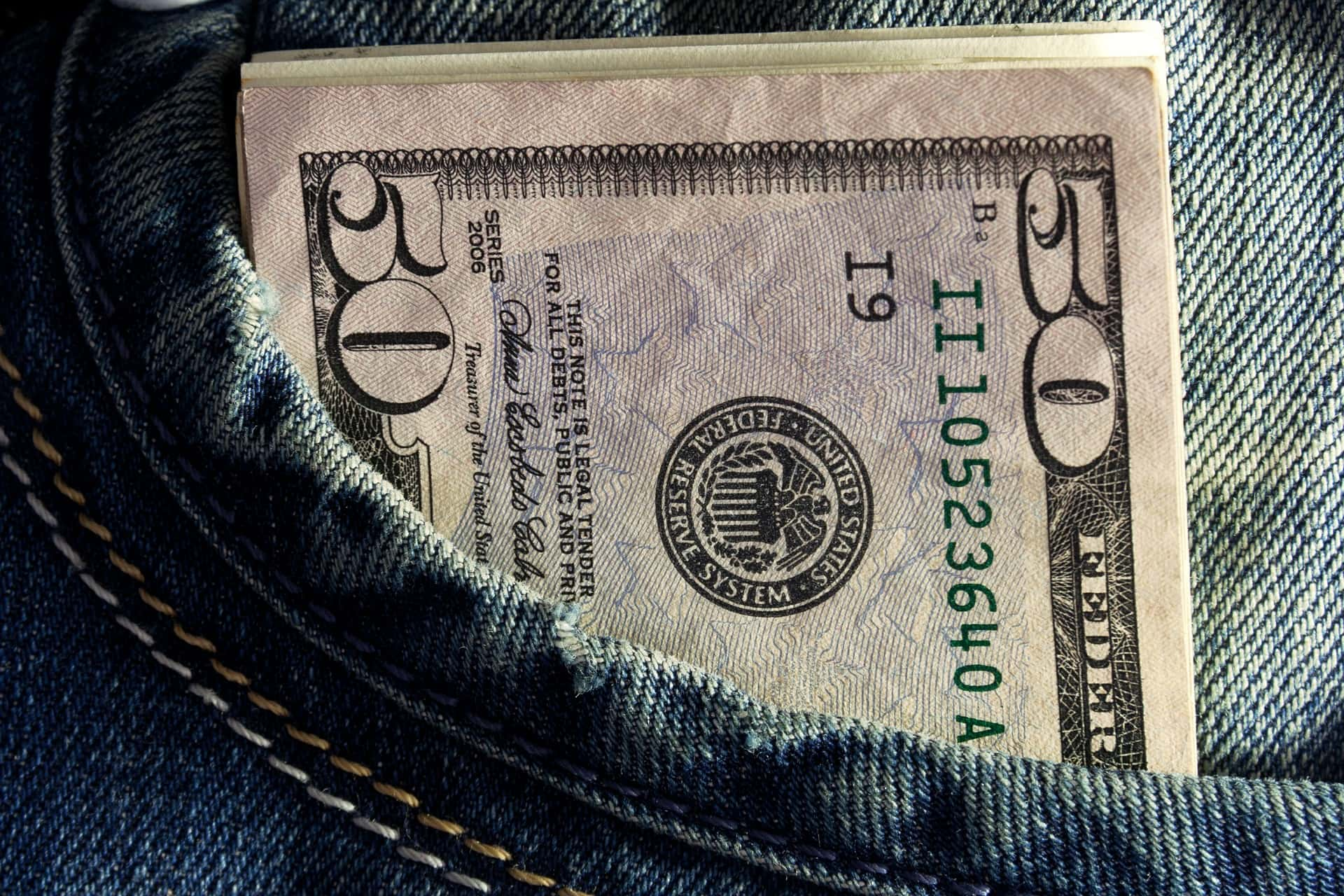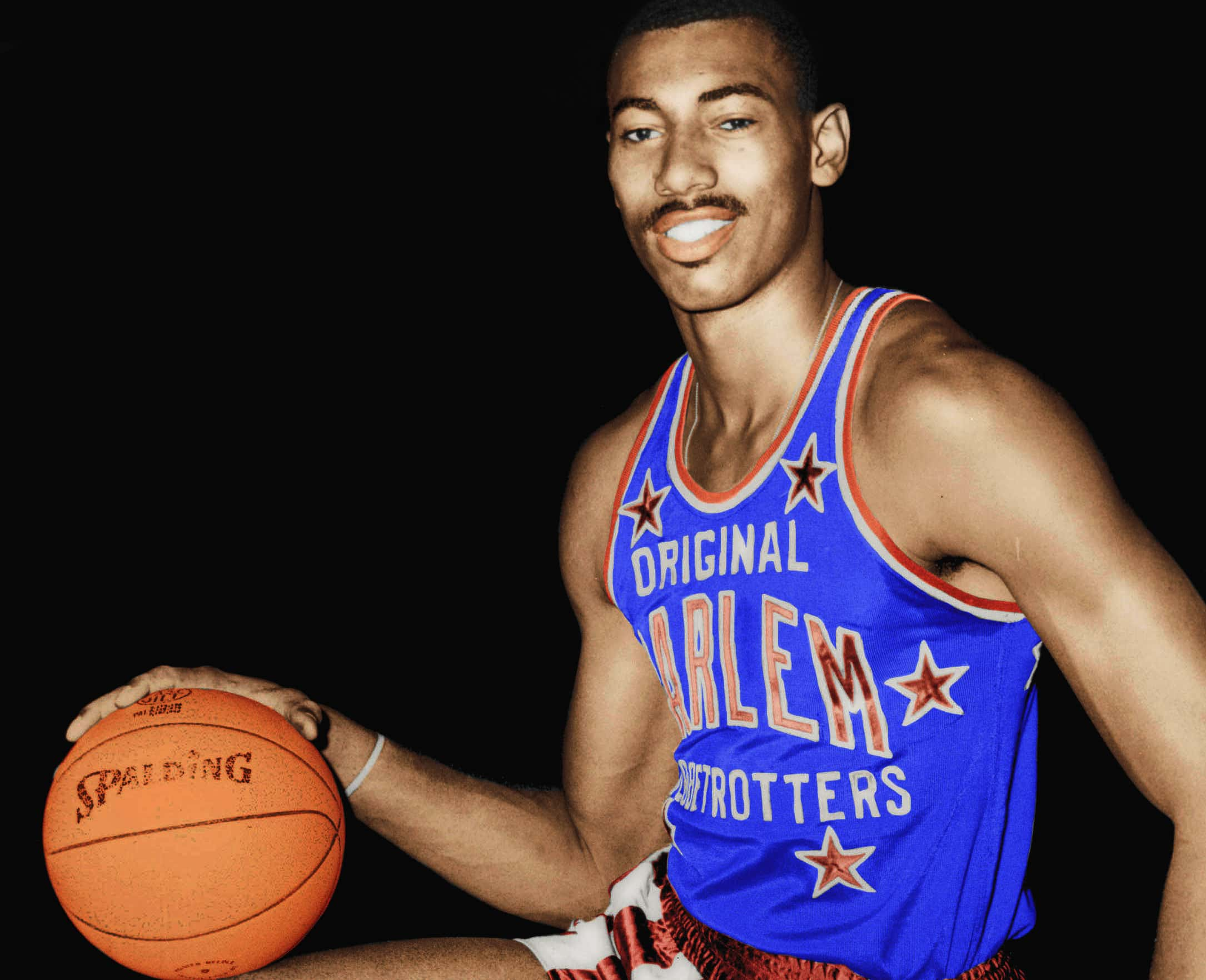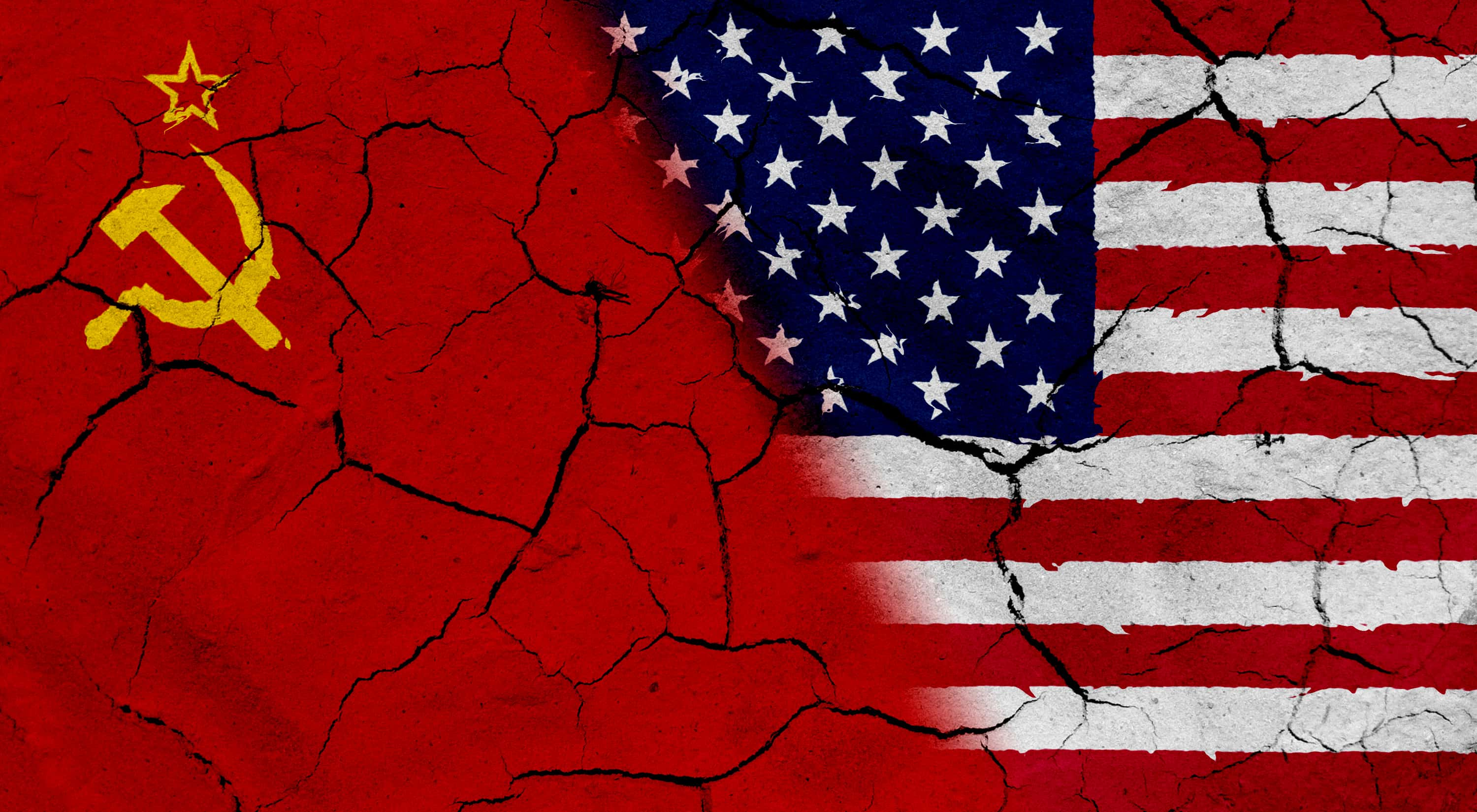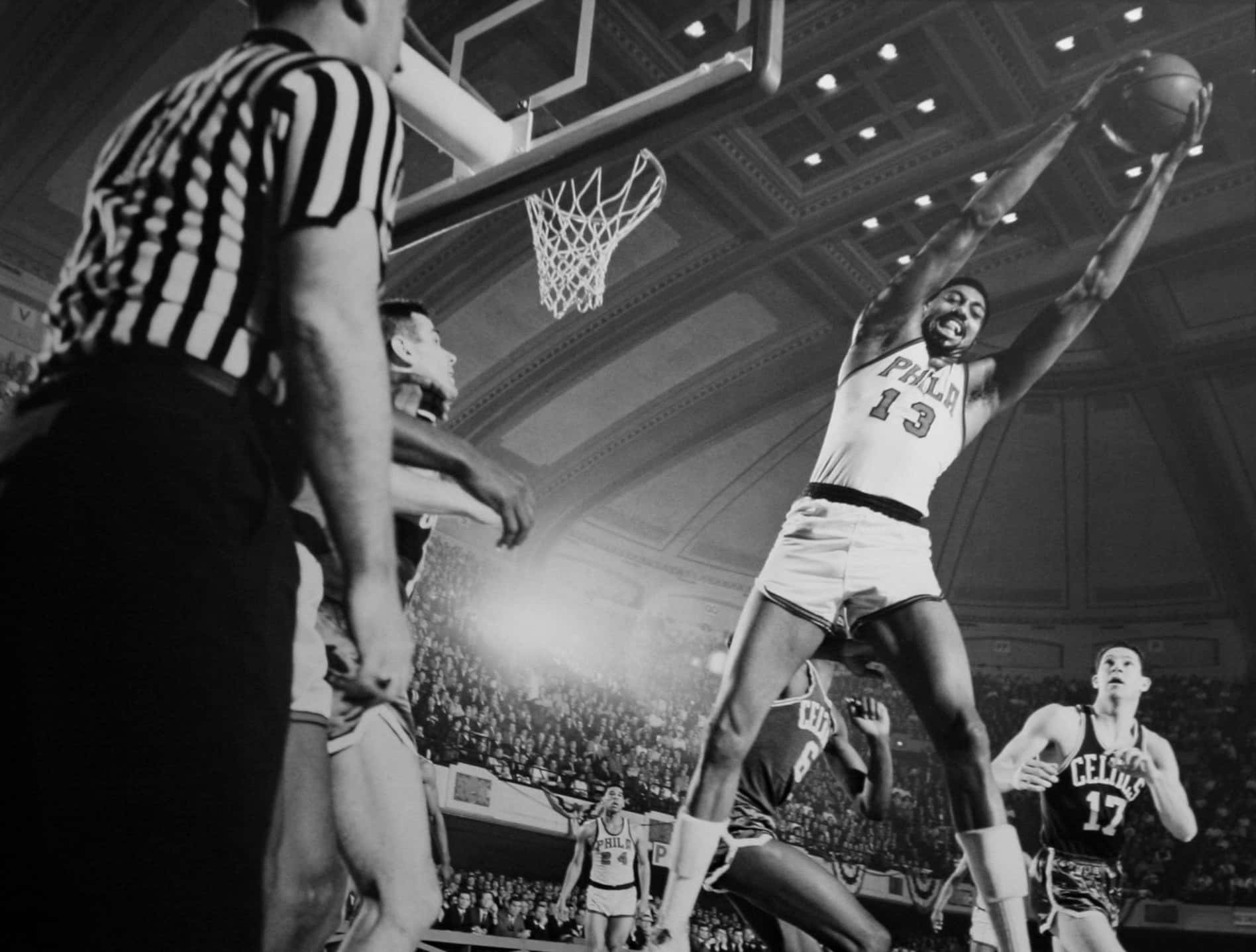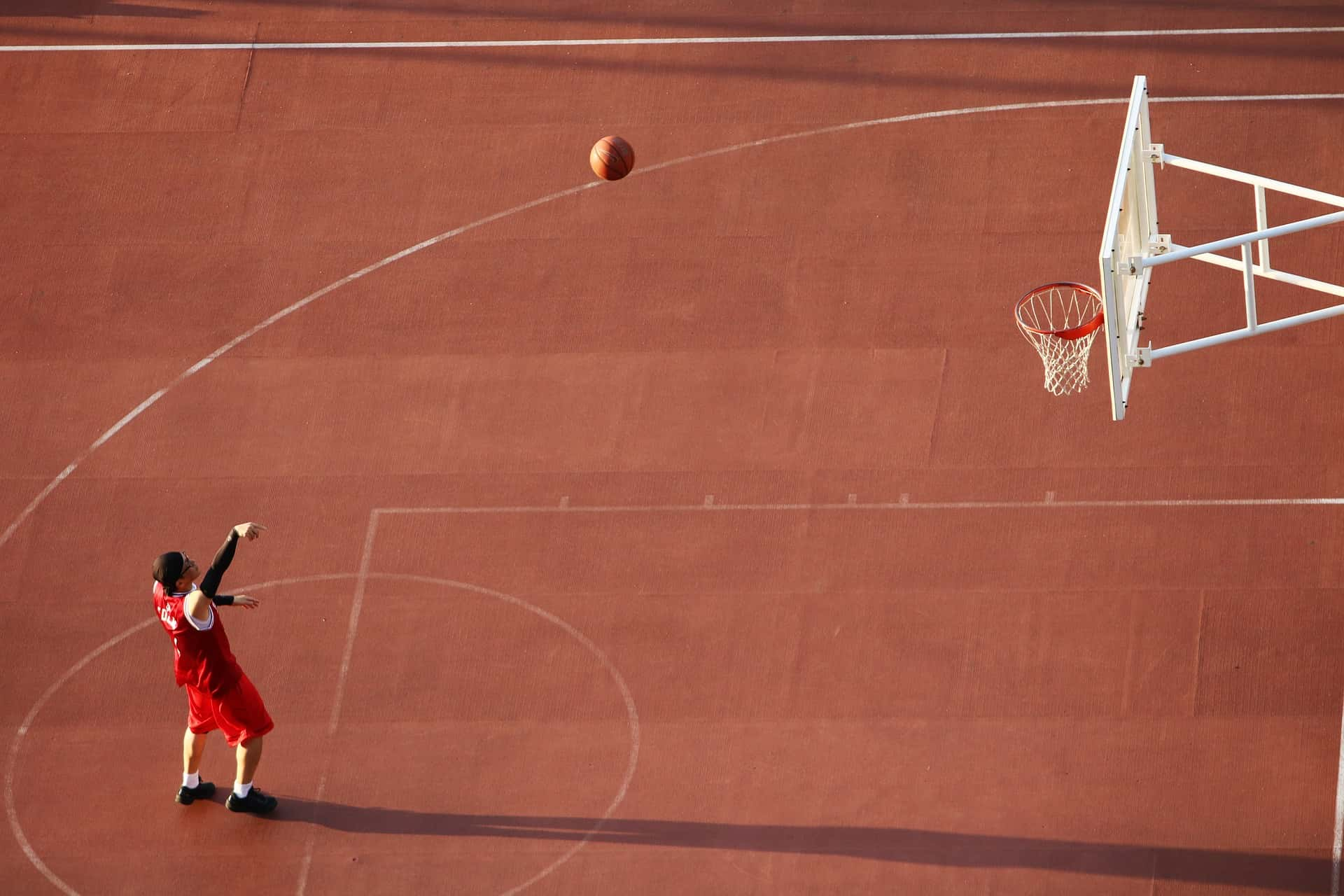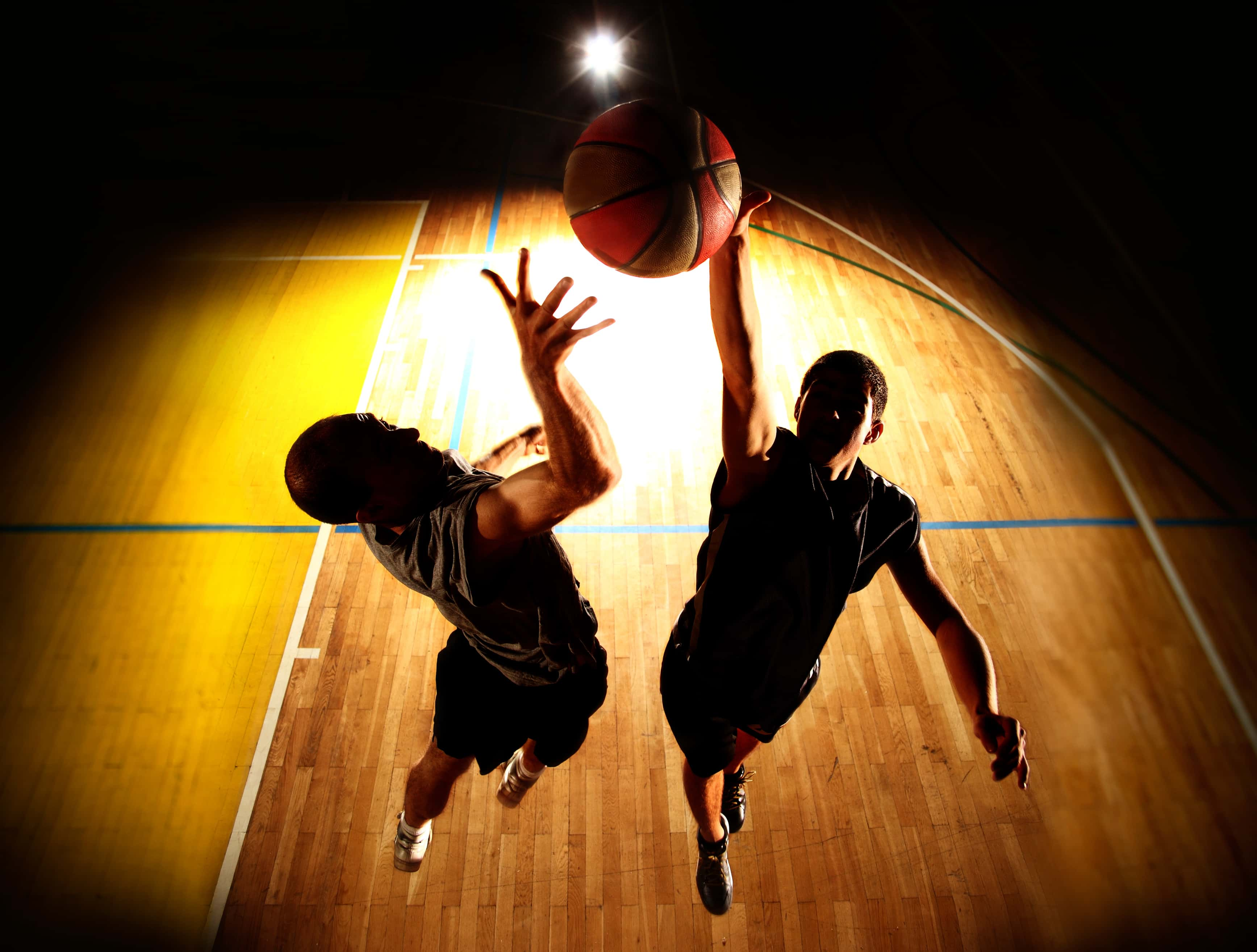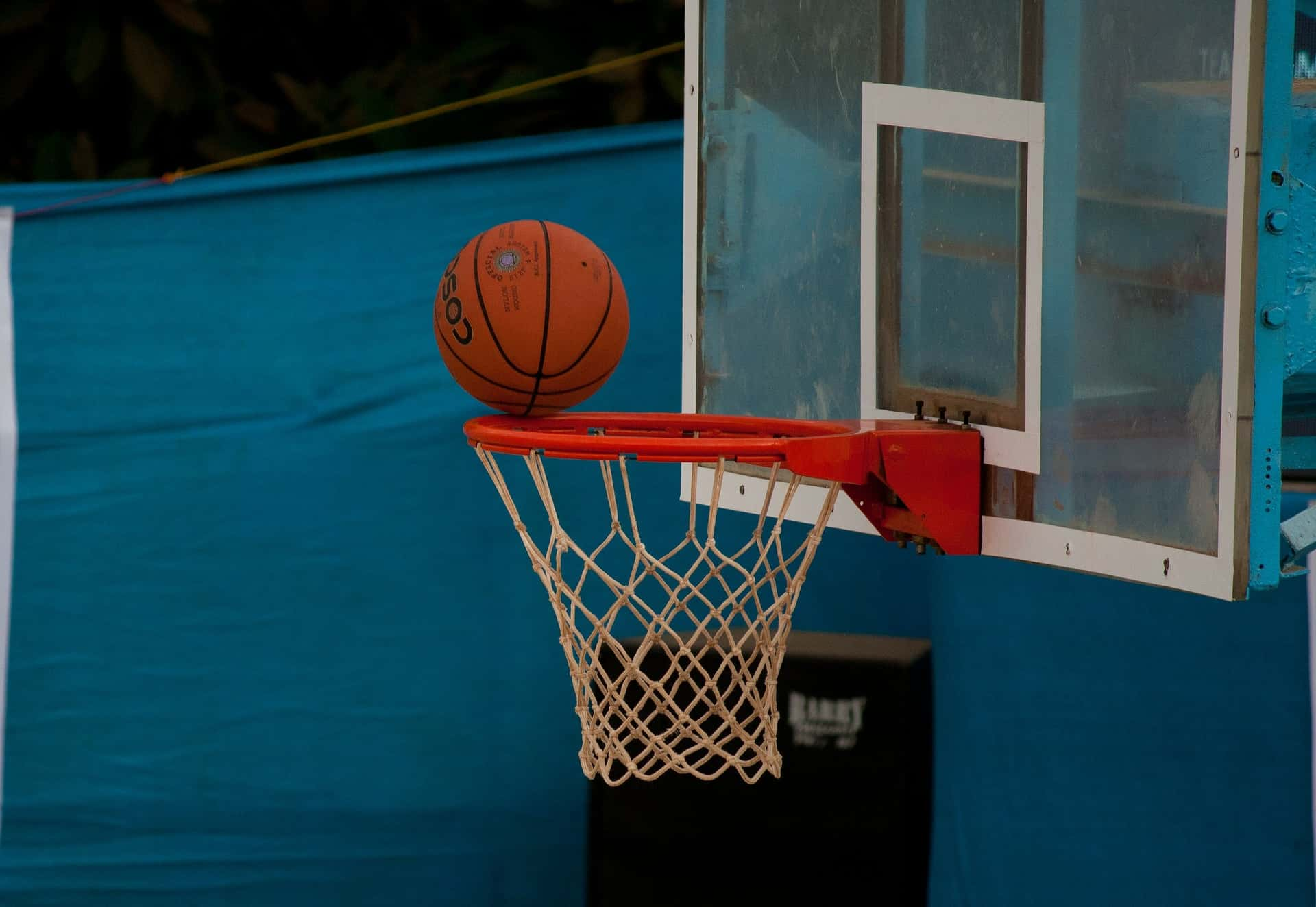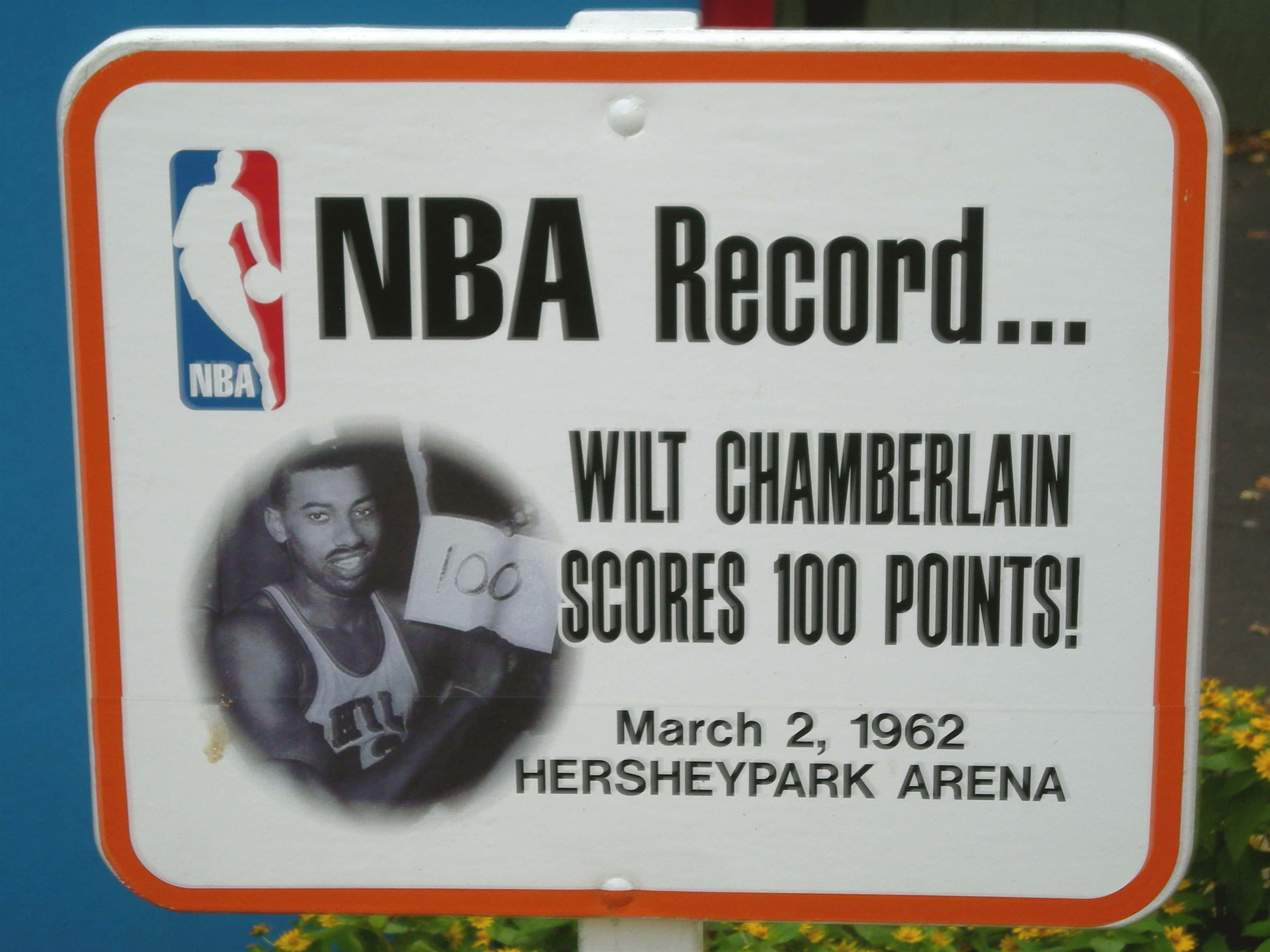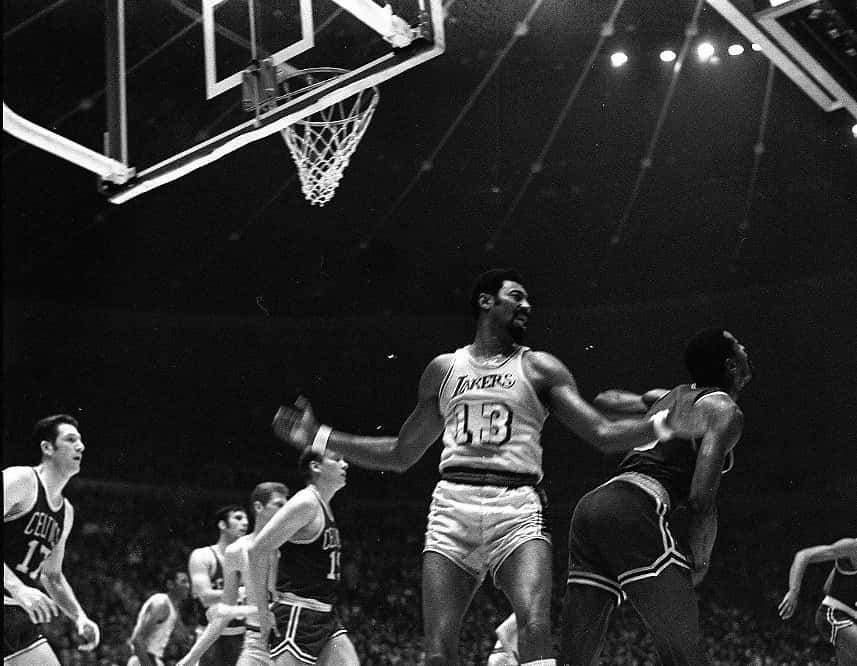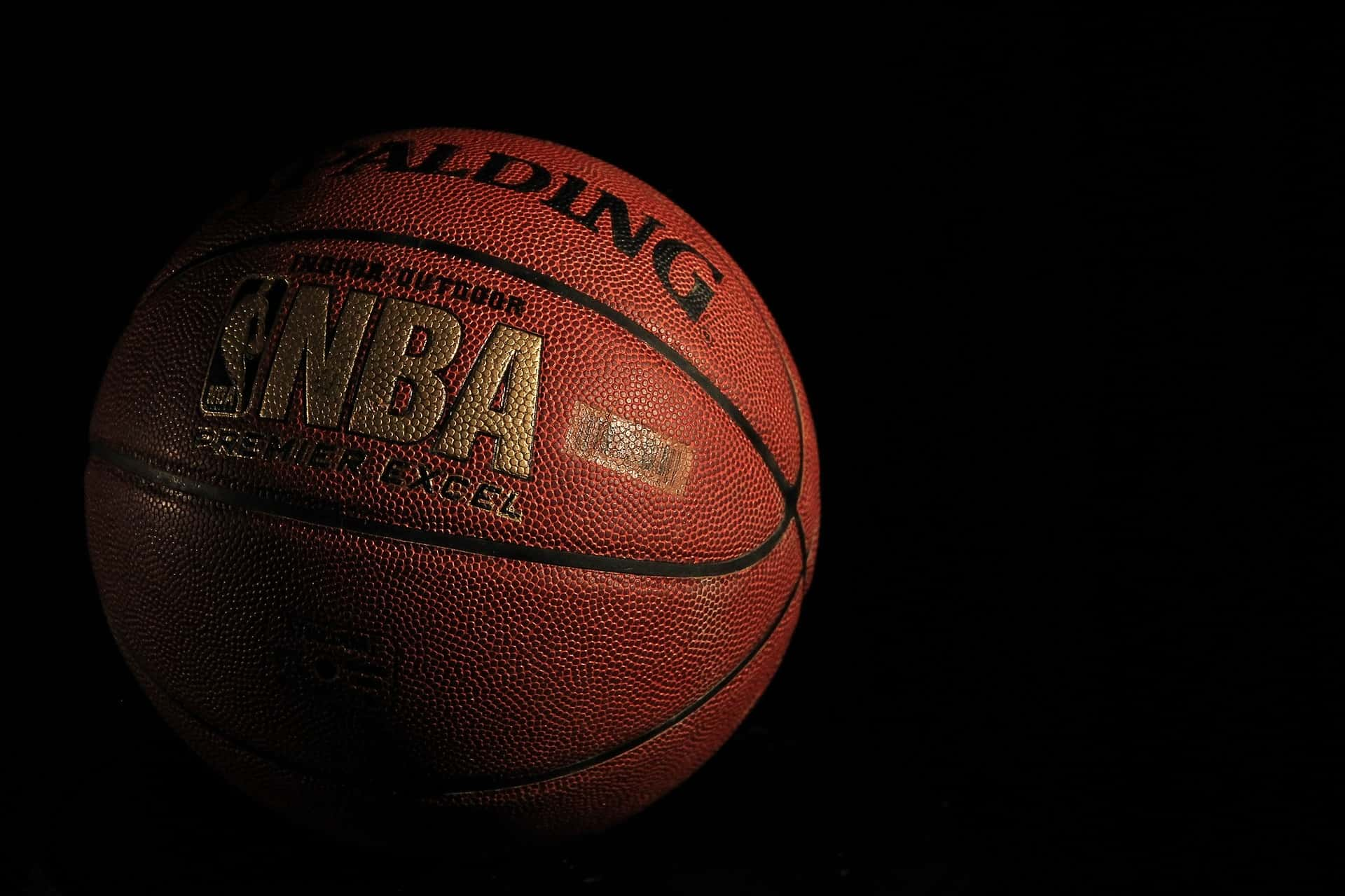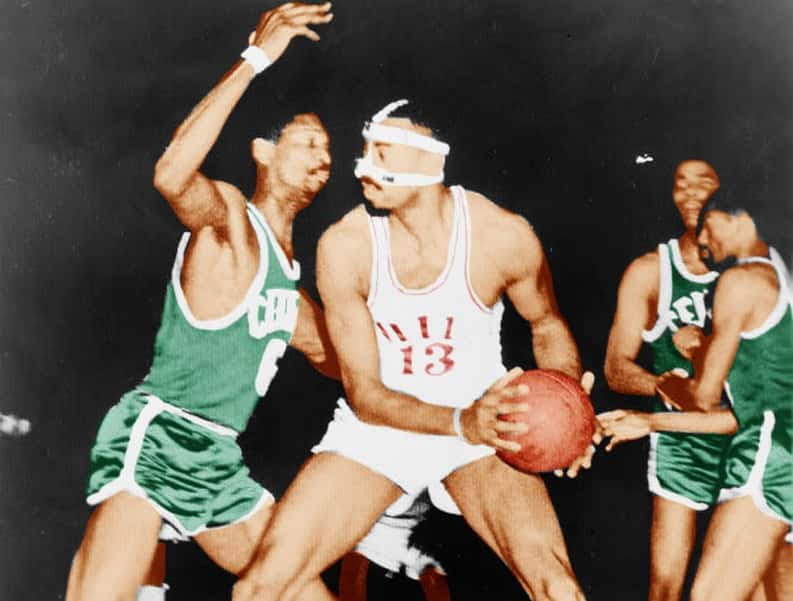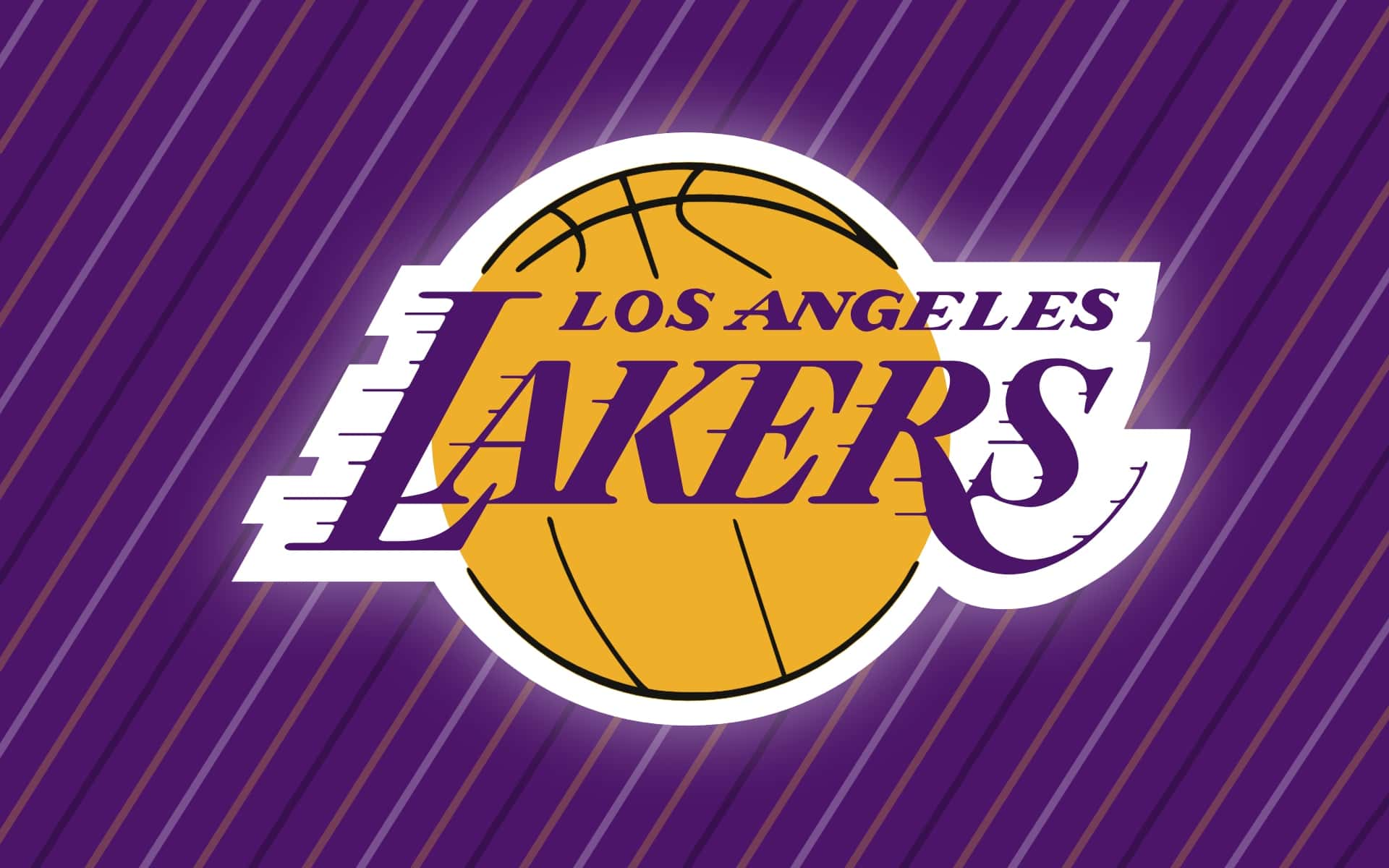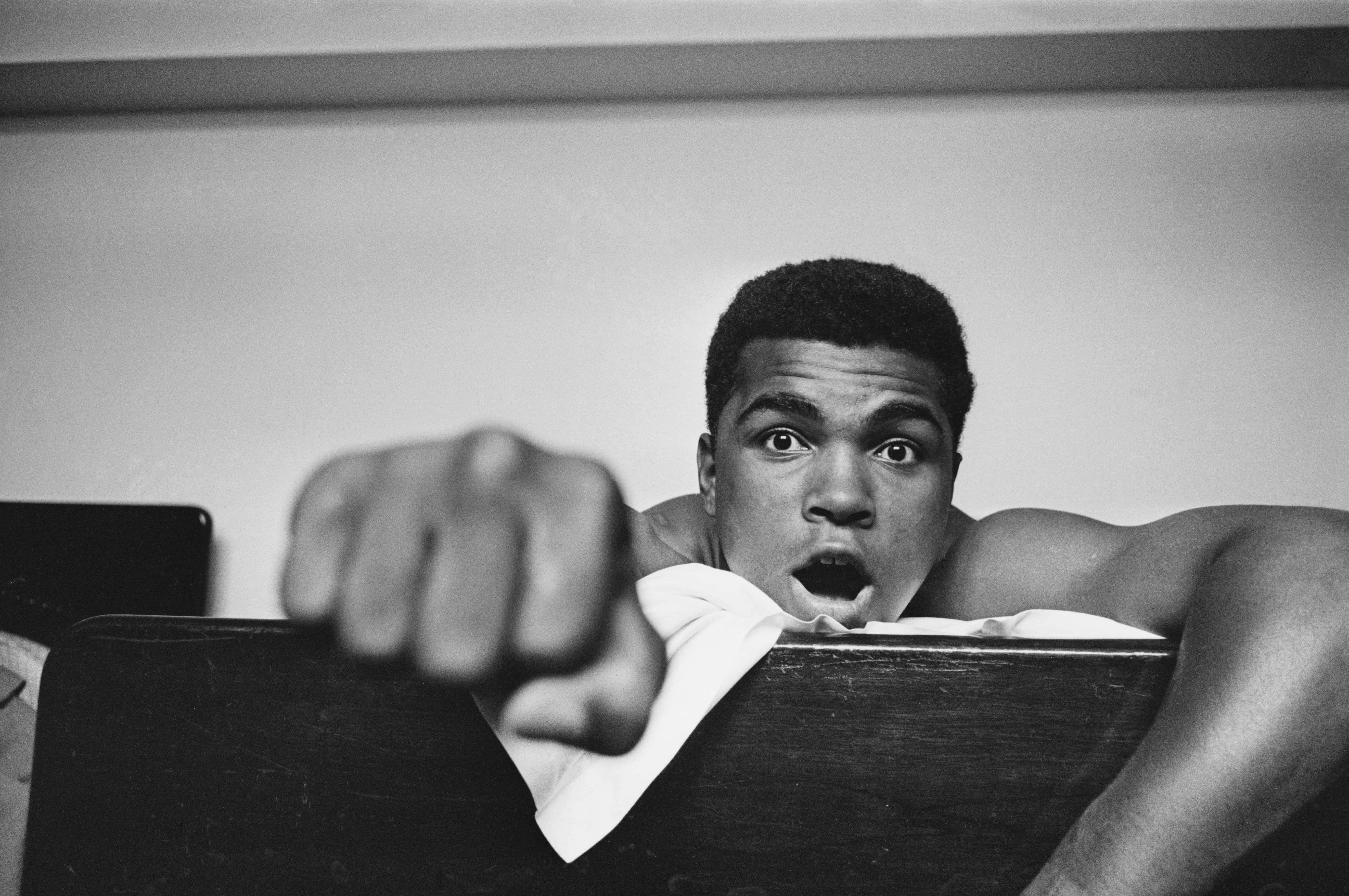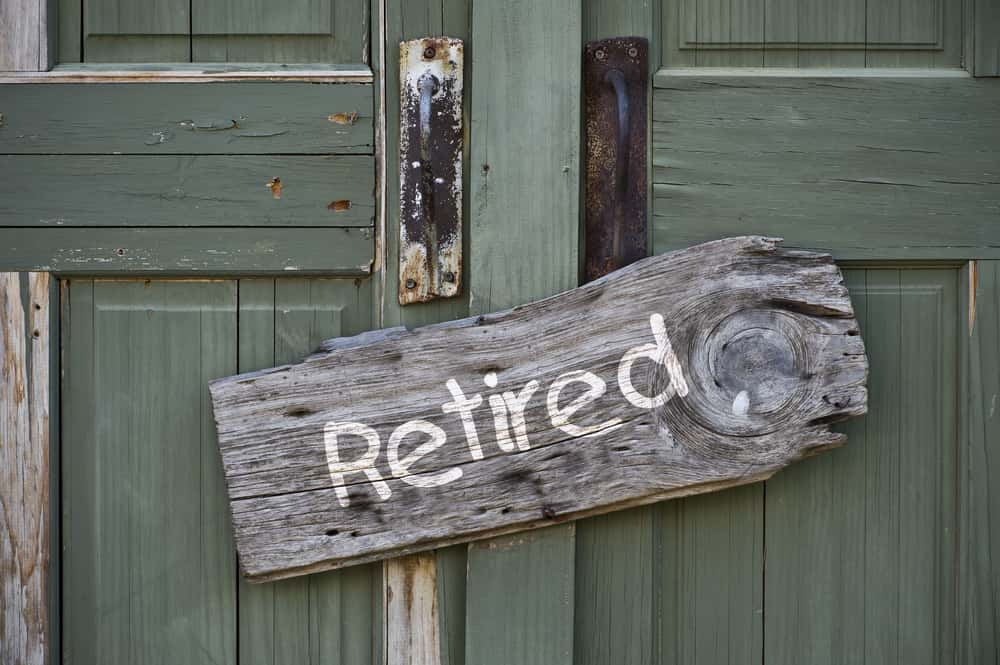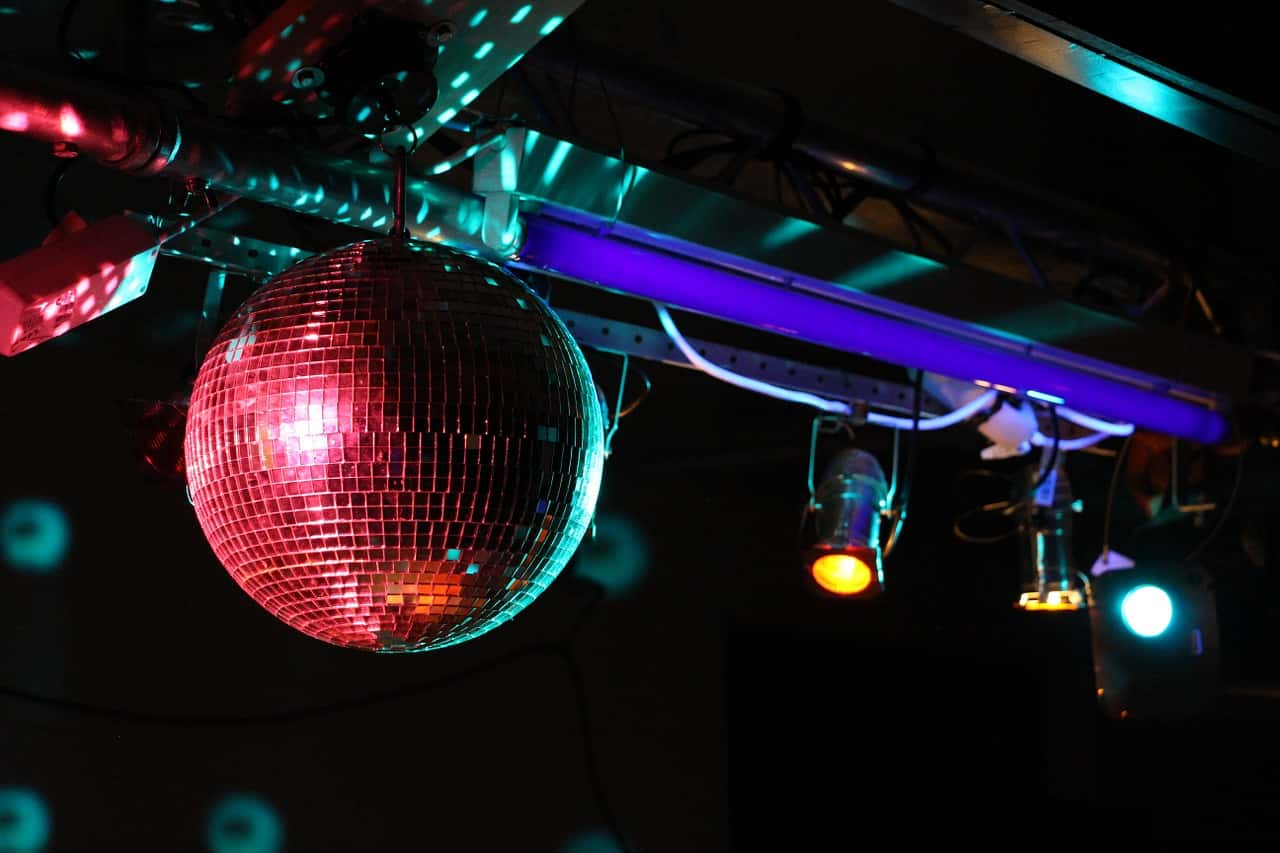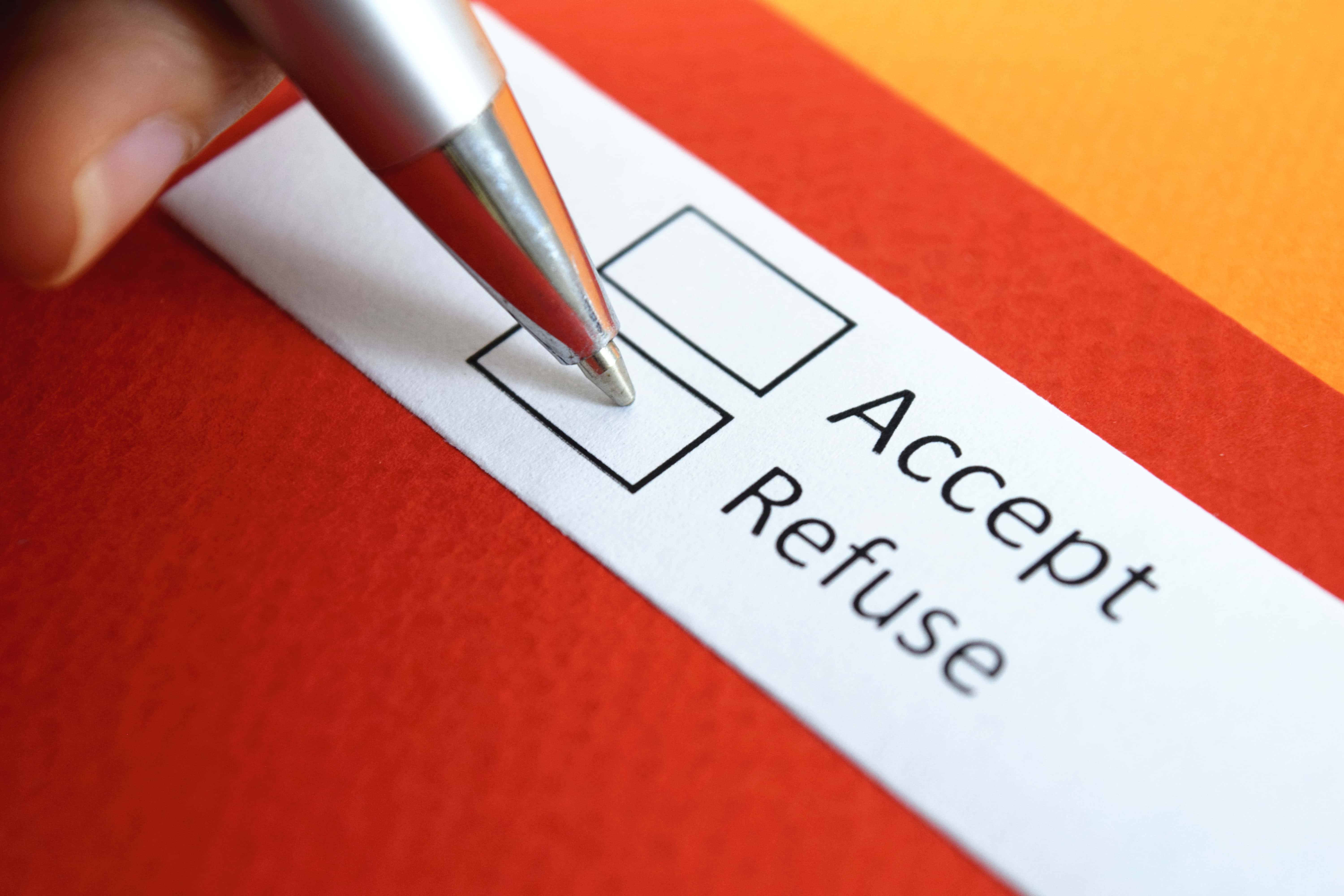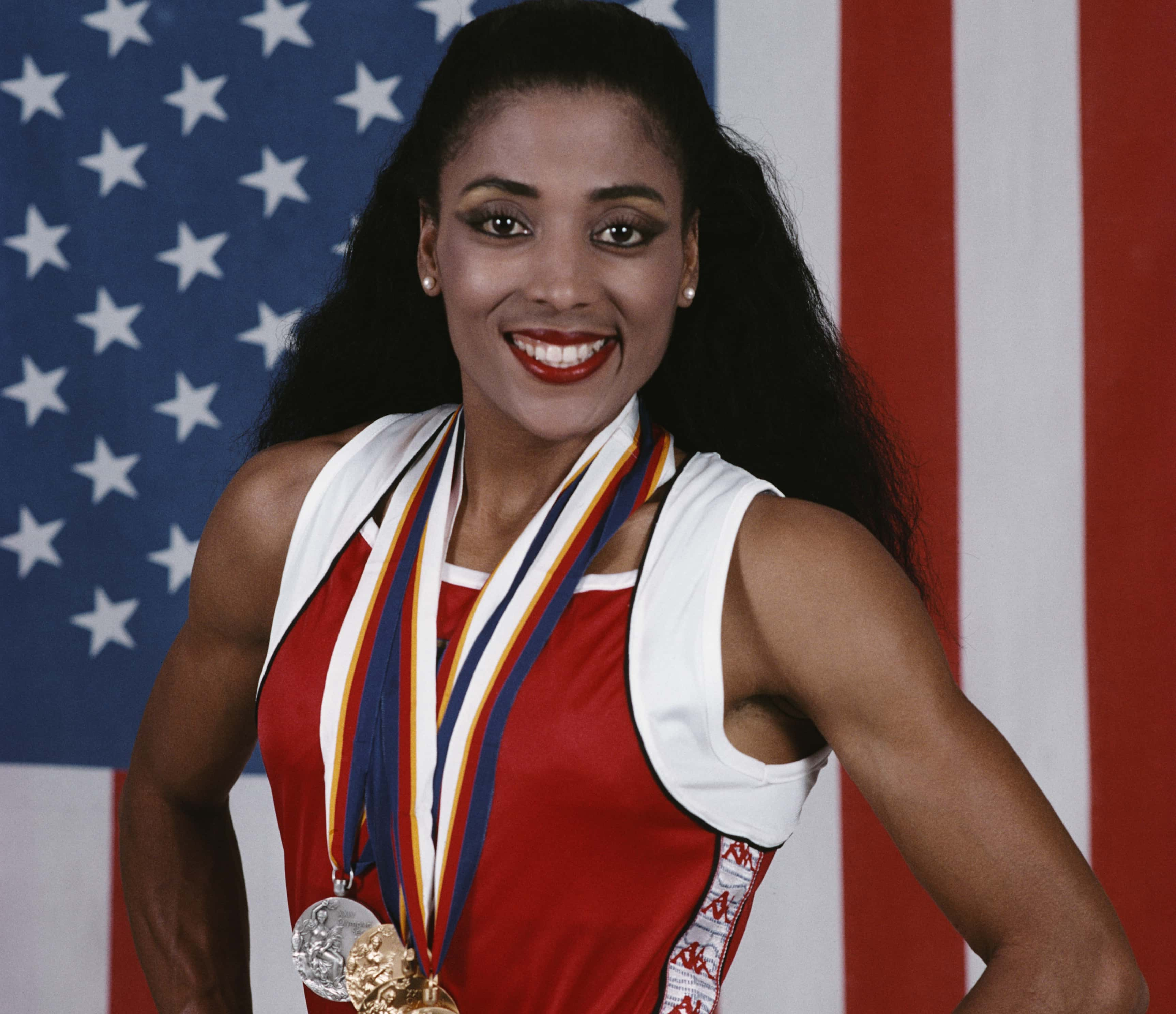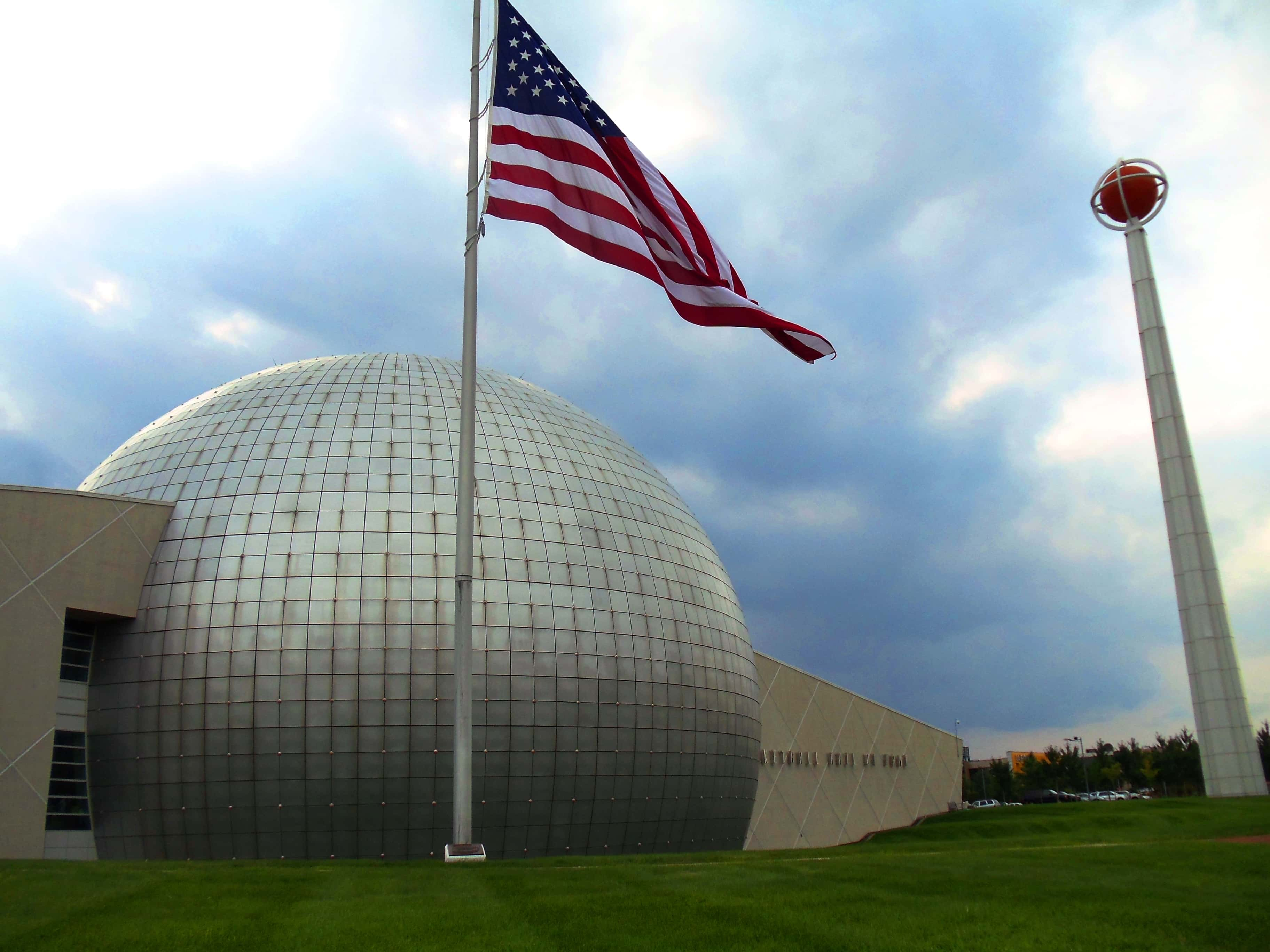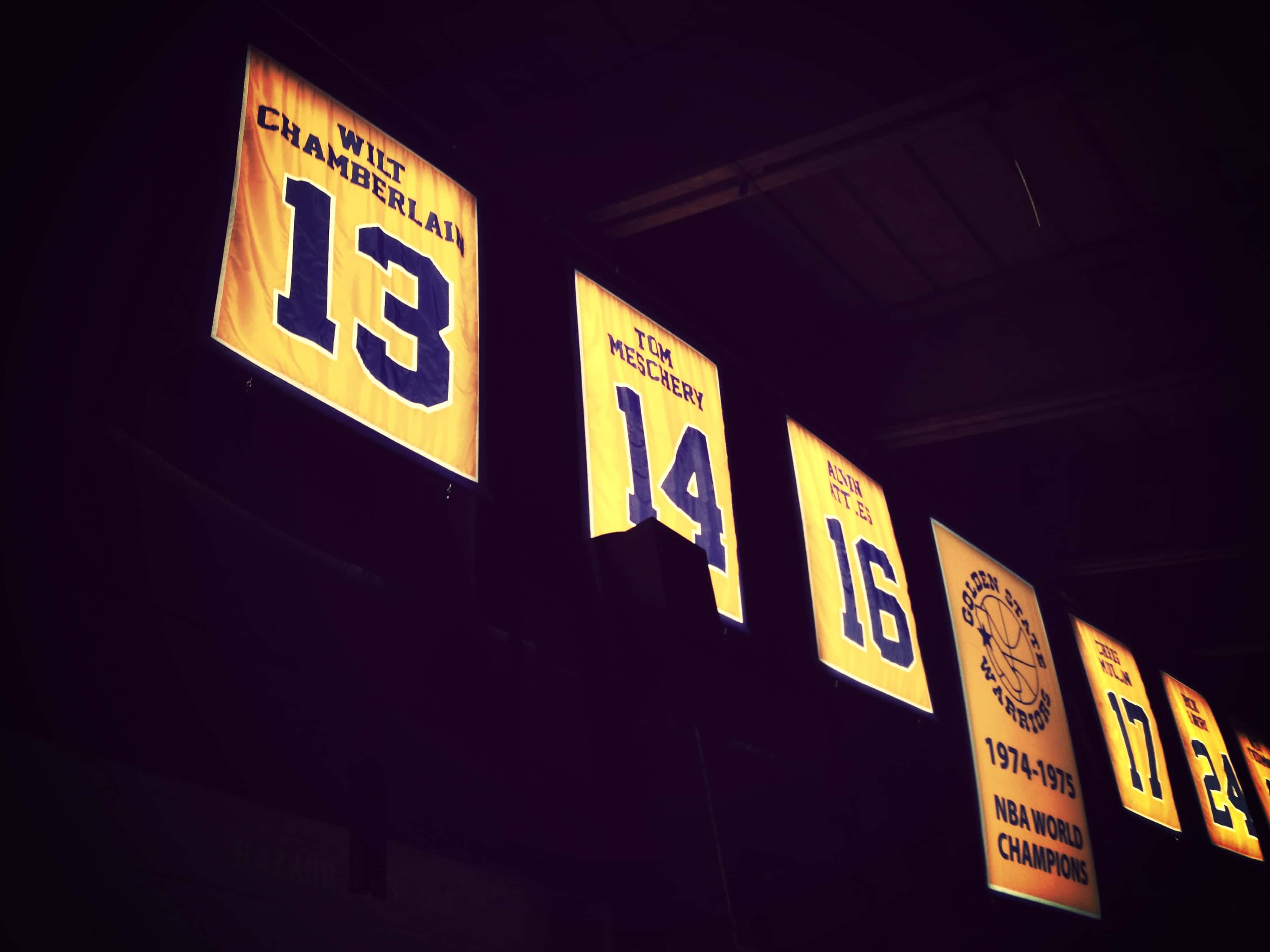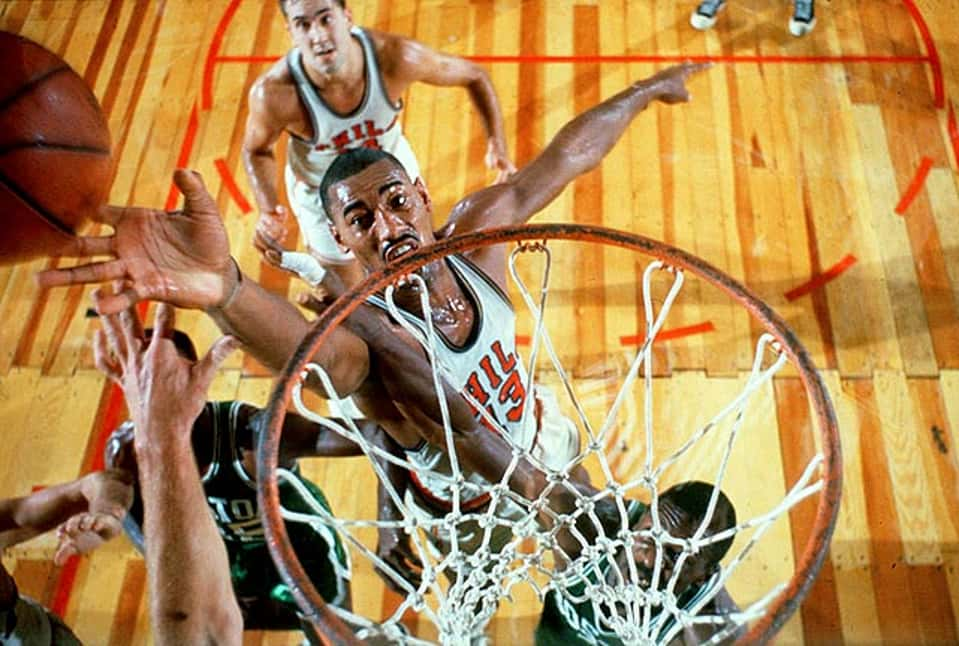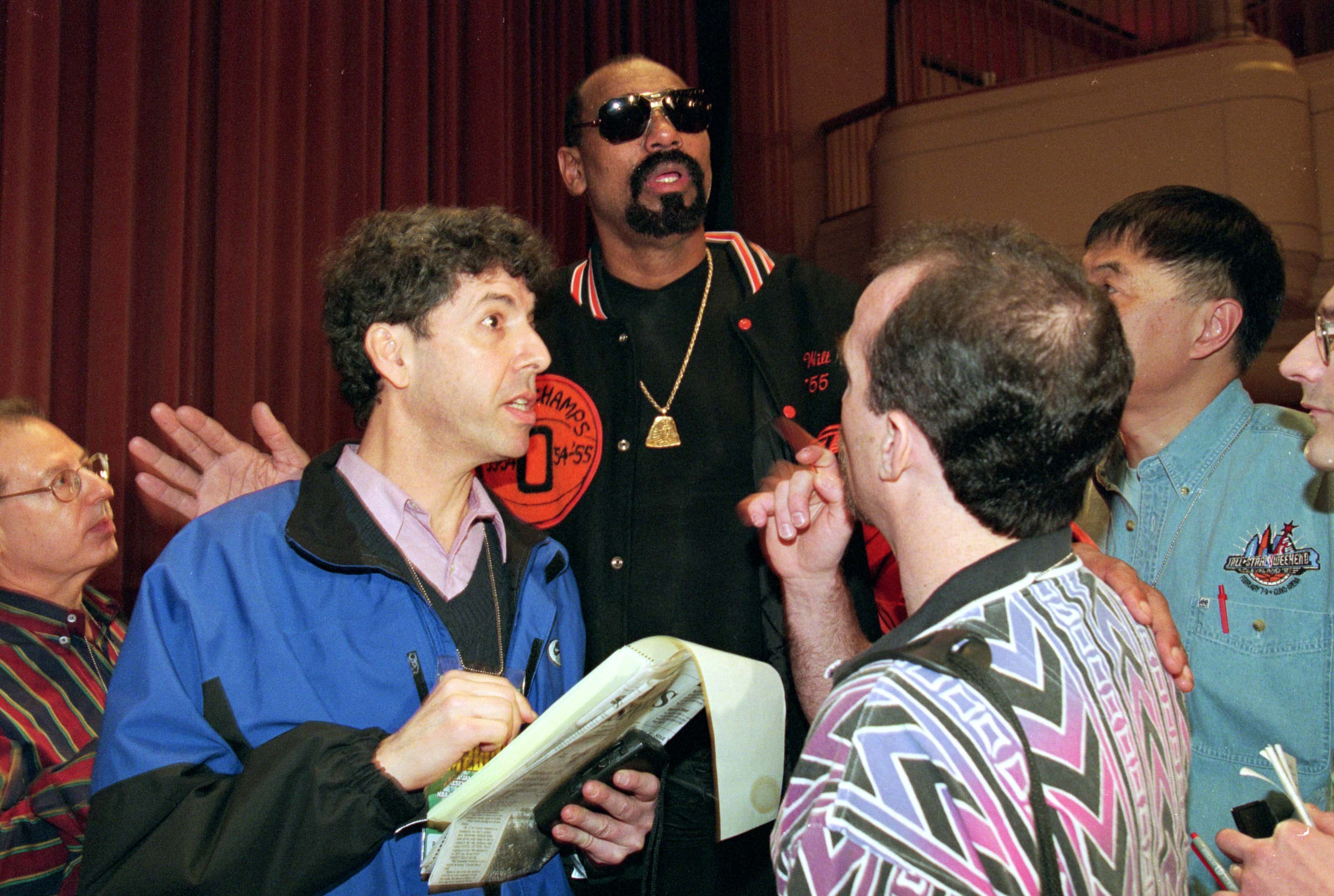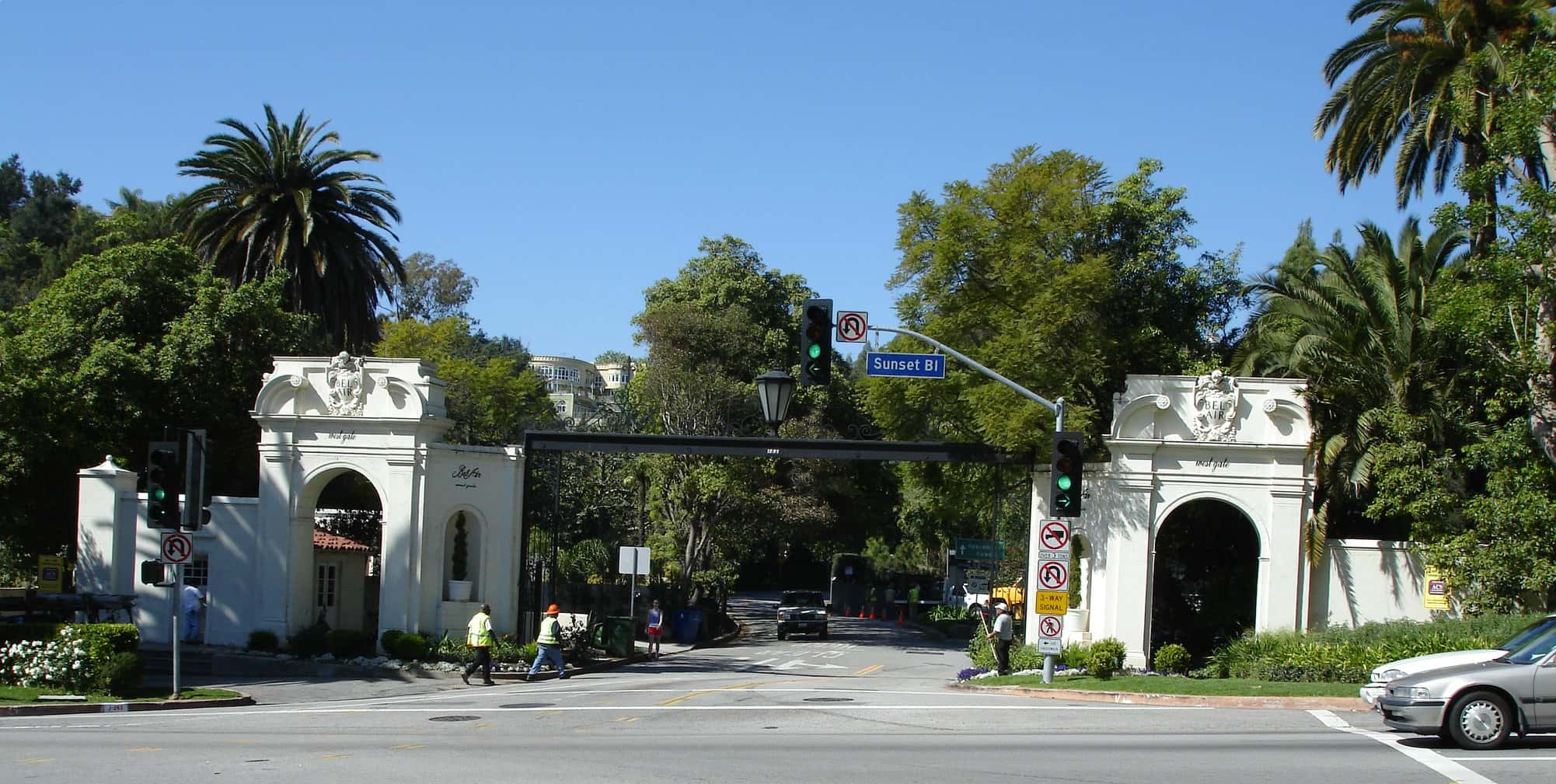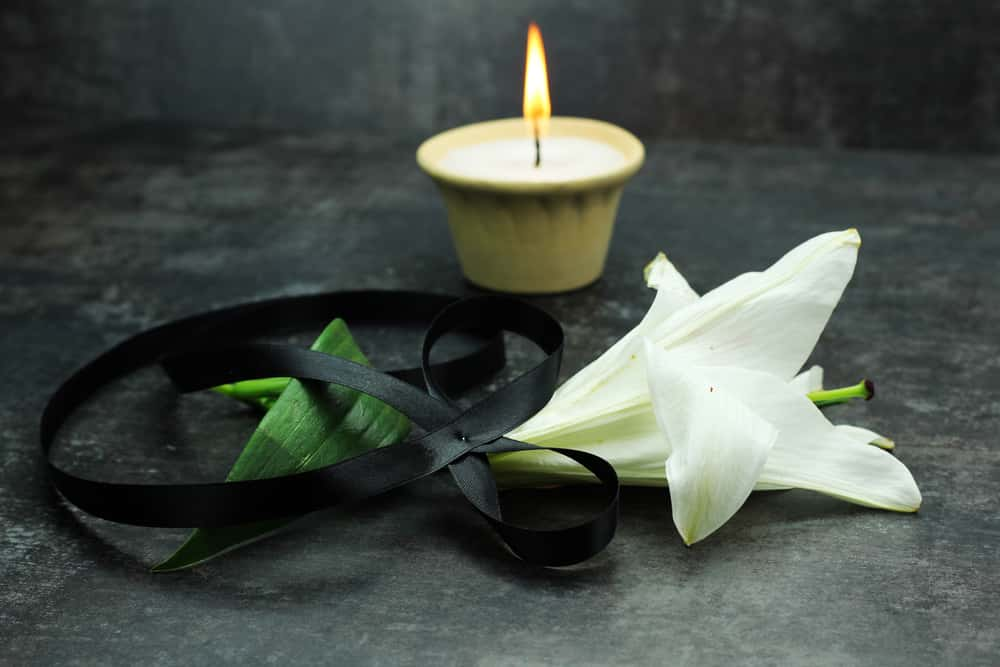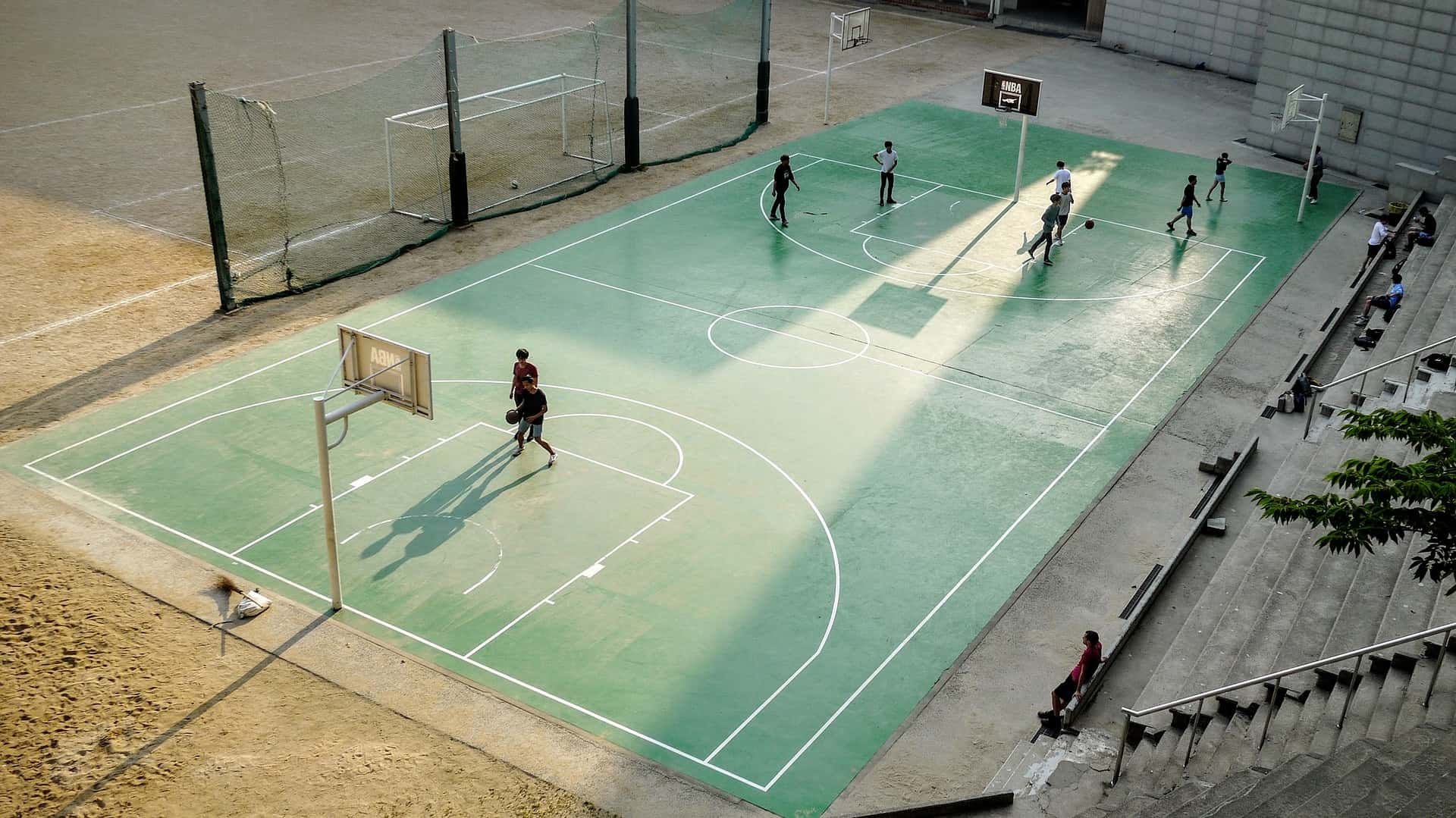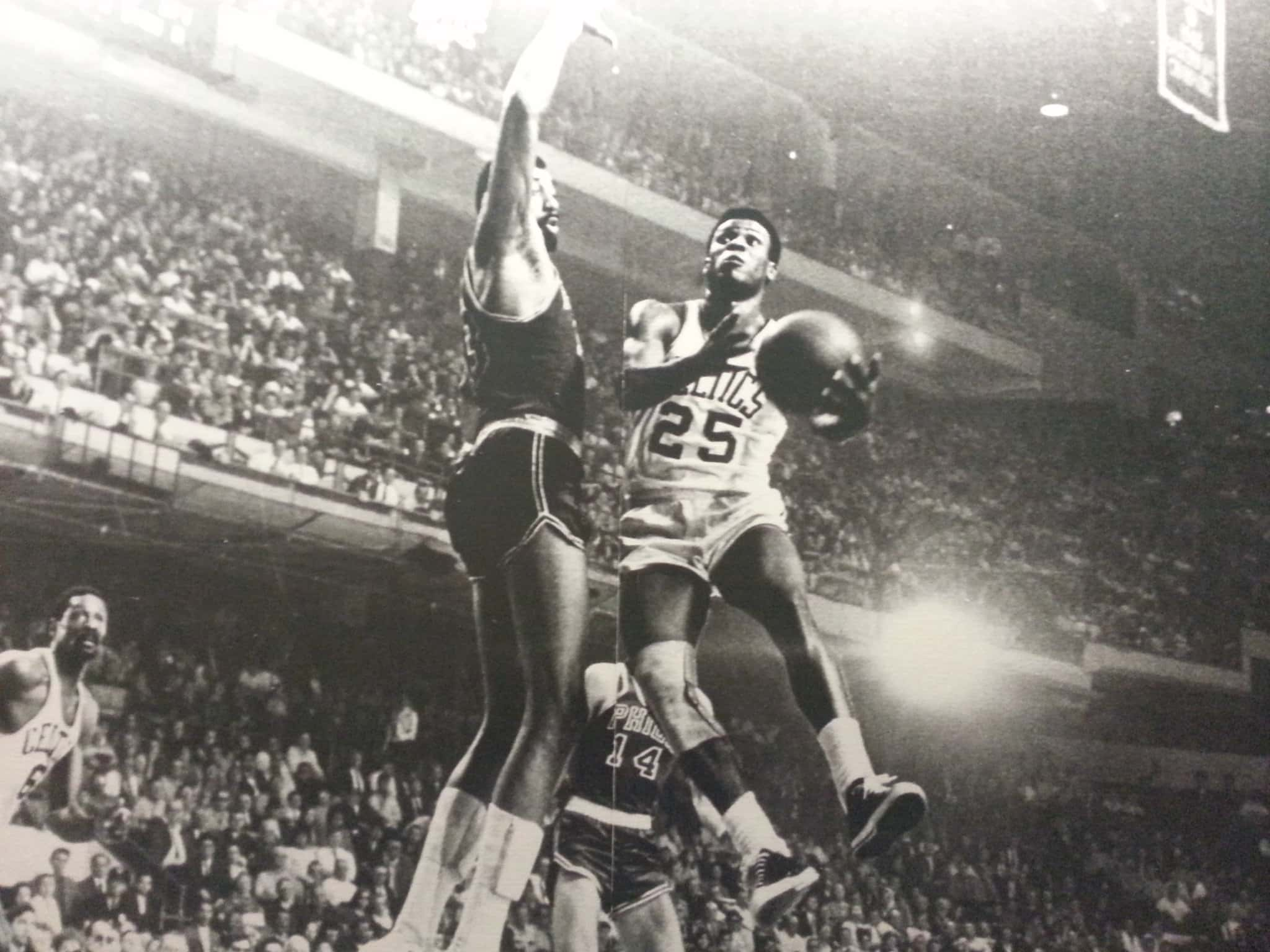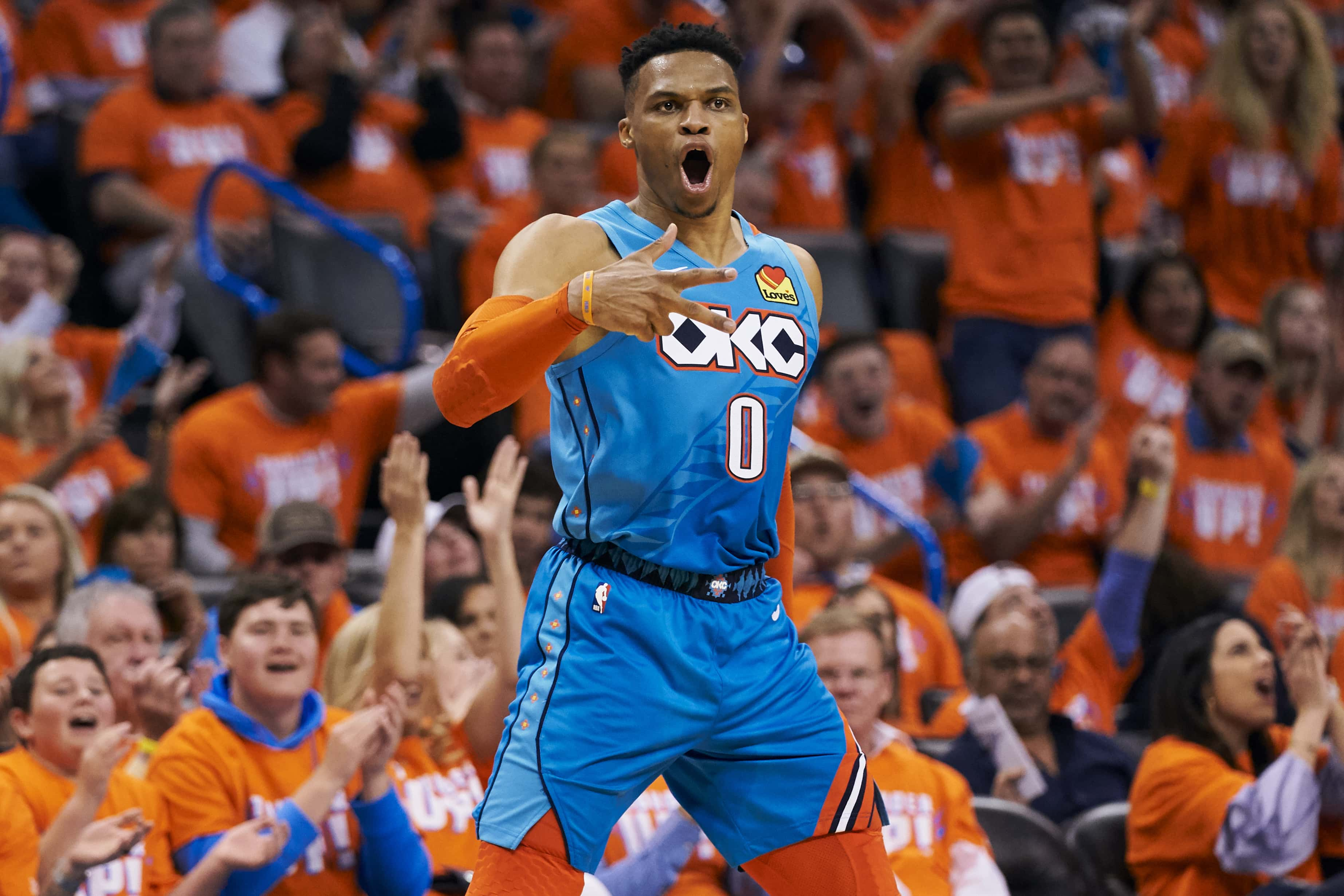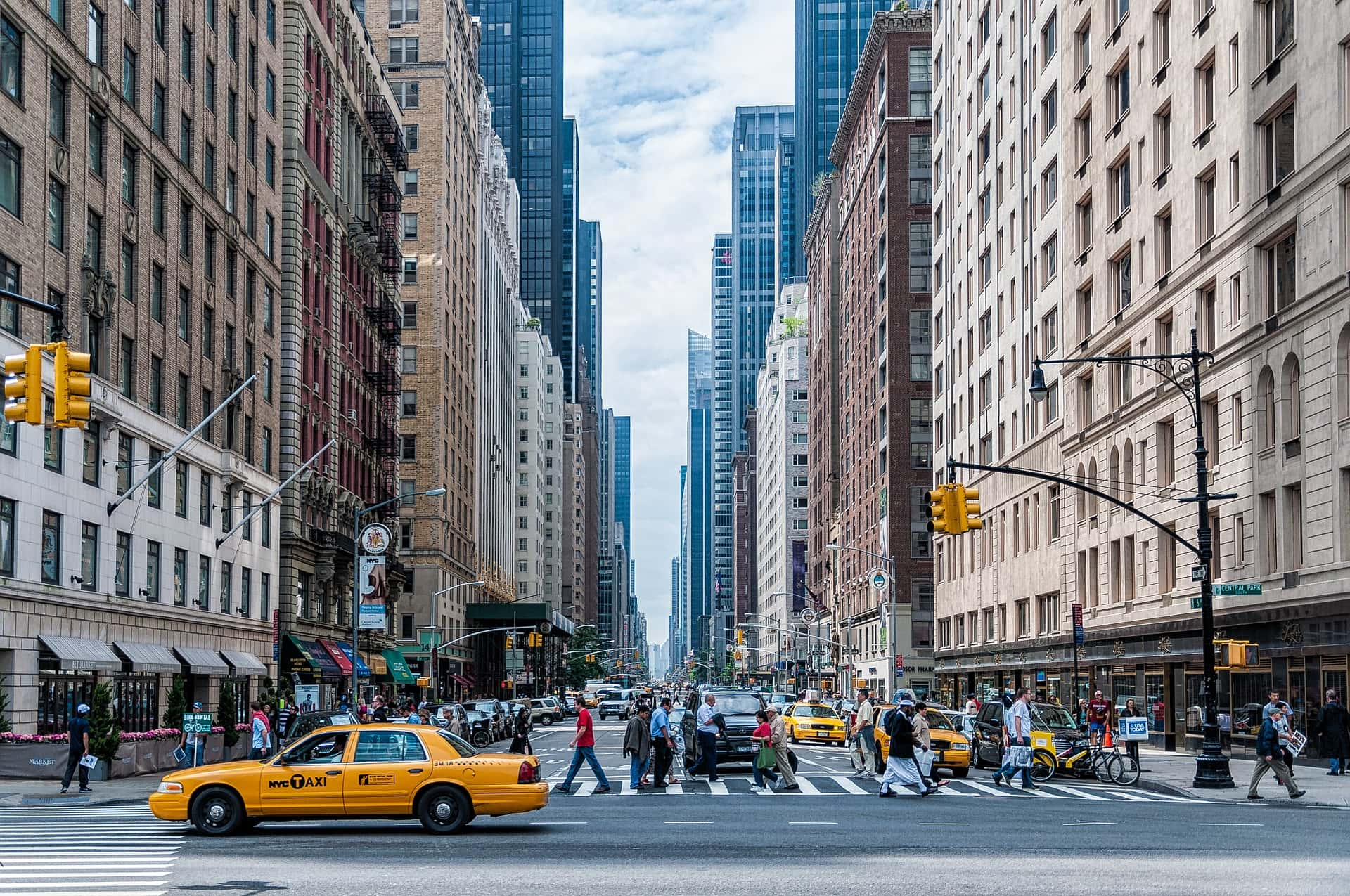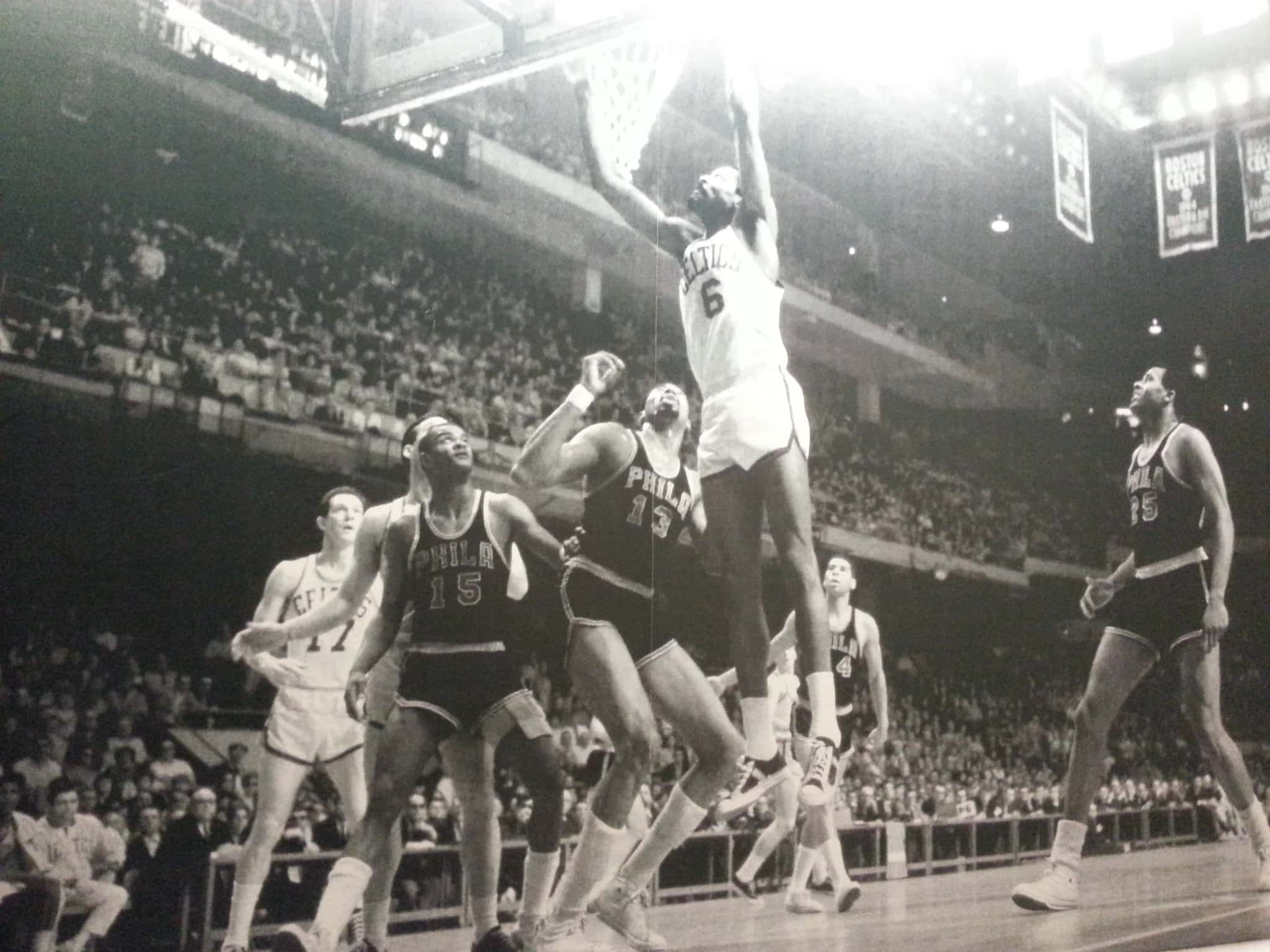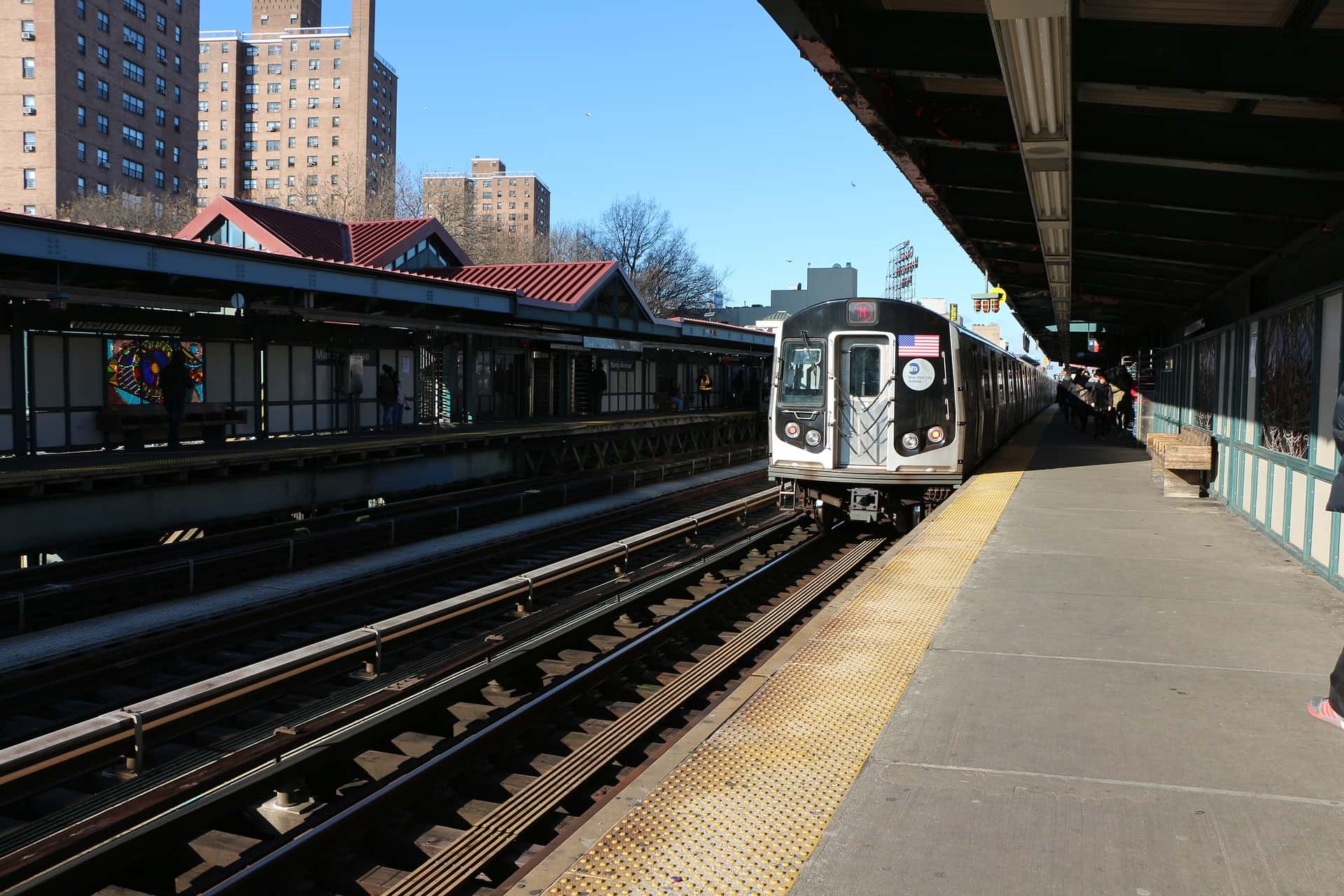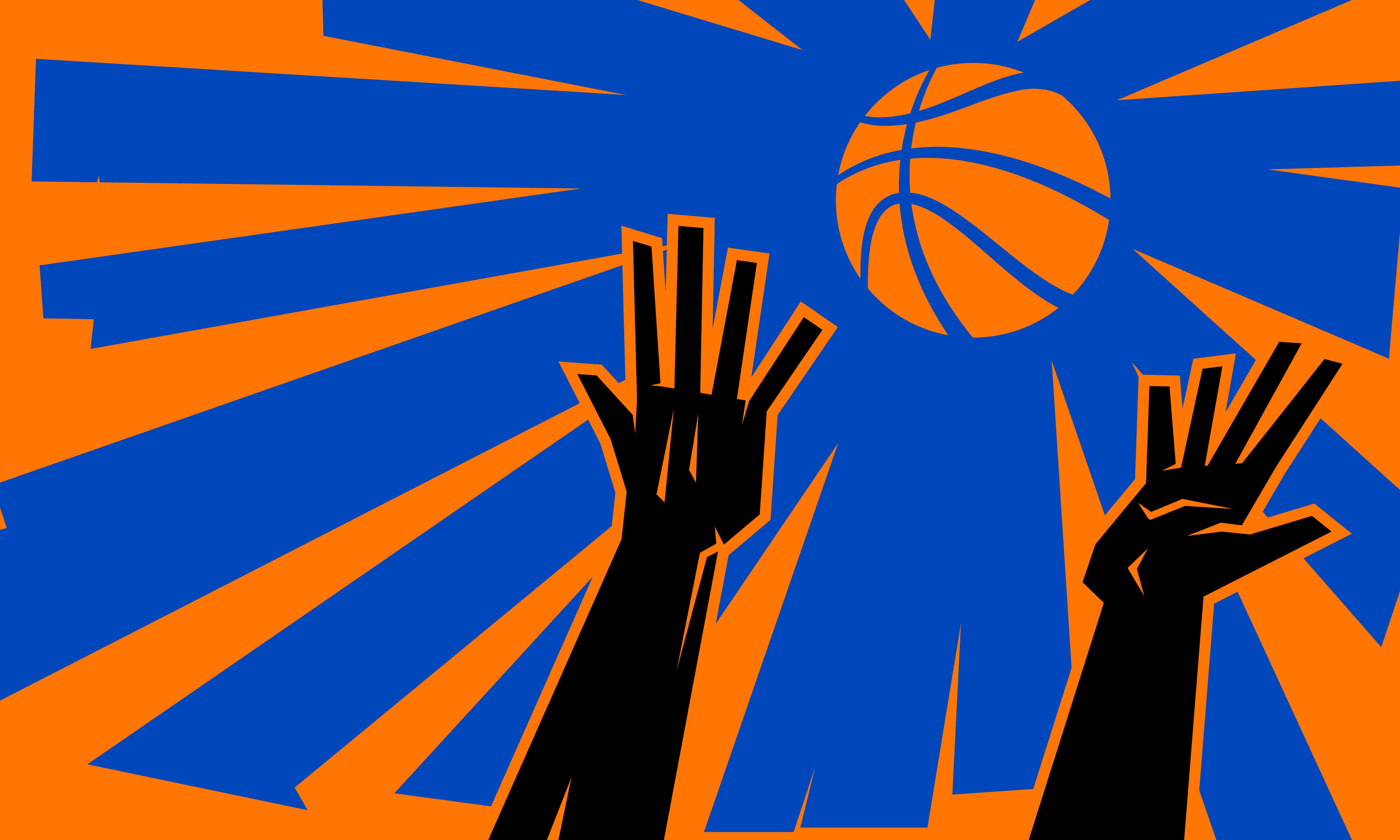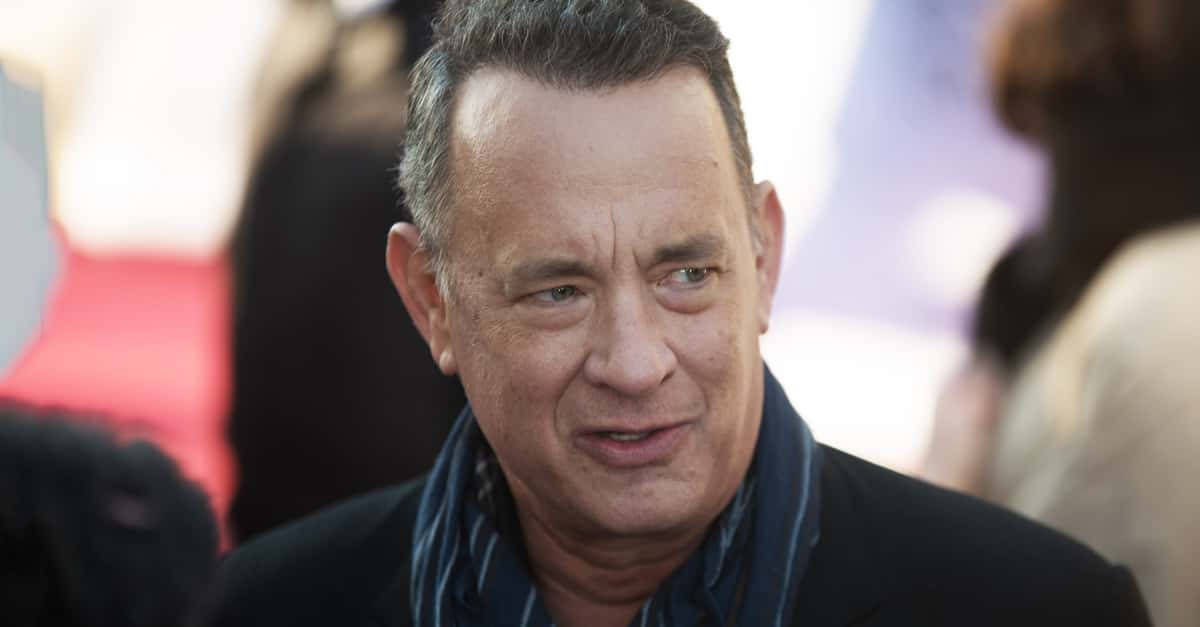Wilt Chamberlain’s dominant physical presence, superior rebounding skills, and unparalleled scoring abilities (most notably racking up 100 points in a single game) cemented his legacy as one of the greatest basketball players of all time. His stellar play and fierce battles with Bill Russell of the Boston Celtics helped establish a national following for a relatively new-on-the-scene NBA. Chamberlain also became (in)famous for some of his scandalous off-court activities. Simply put, Wilt Chamberlain was a fascinating man worthy of further exploration.
1. The Birth of Wilt
Wilton Norman Chamberlain was born on August 21, 1936, to Olivia Ruth Johnson and William Chamberlain in Philadelphia, Pennsylvania. He was one of the couple’s nine children.
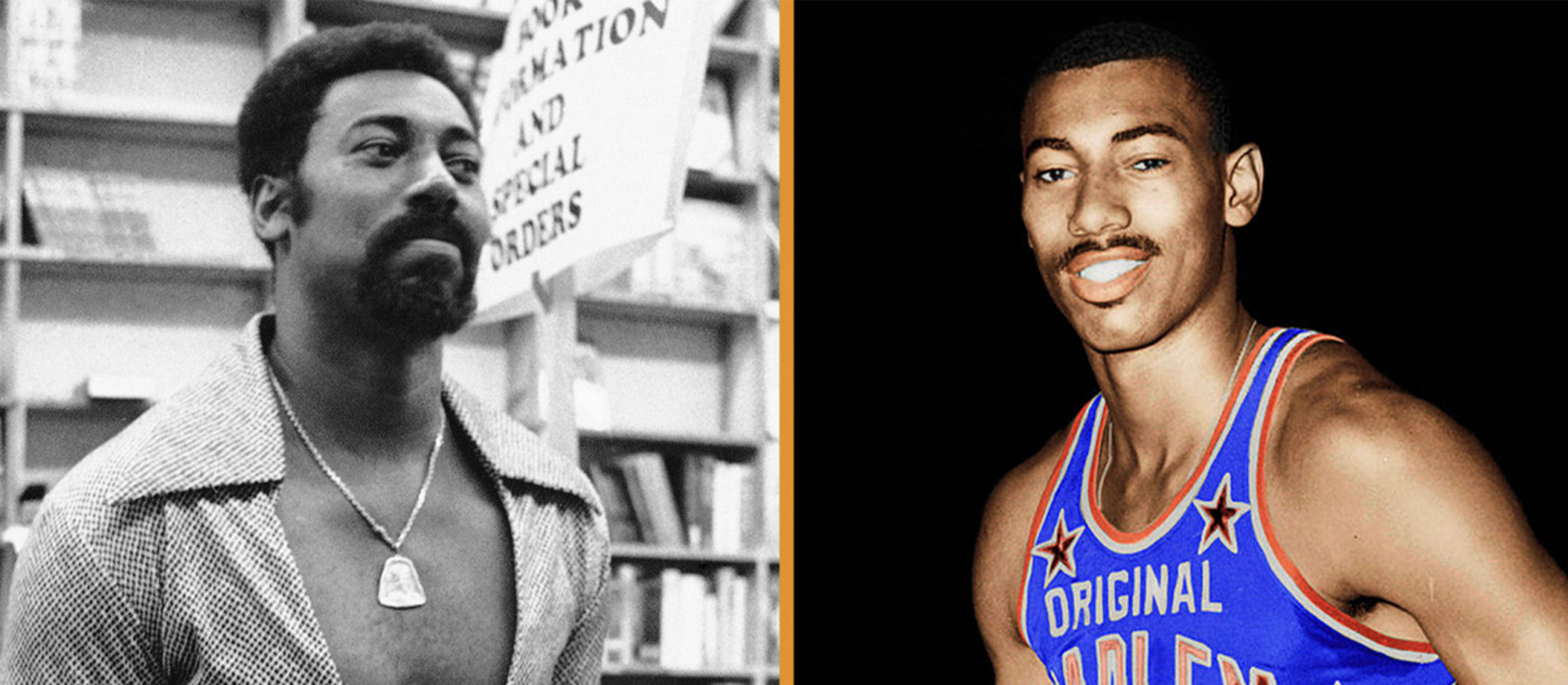
2. A Giant Among Men
Chamberlain stood at a towering 7'1". His imposing height was inevitable; he reached six feet when he was only 10 years old and reached 6'10" when he was a high school freshman. There was also a great deal of bulk on his tall frame. As a rookie, he weighed 250 pounds, and by the end of his career, he tipped the scales at 300 pounds.
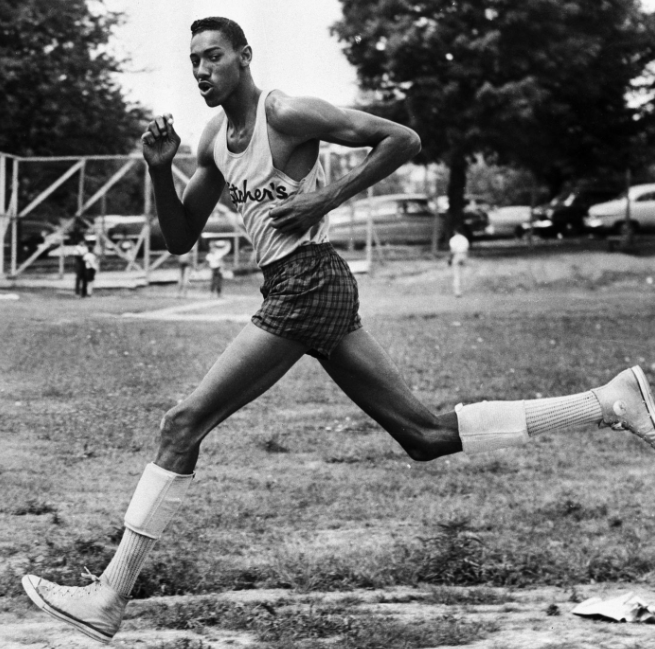
3. Succeeding in Another Track
Before hitting the hardwood, Chamberlain’s sport of choice was actually track and field. Chamberlain was a well-rounded athlete in the discipline; his personal best in the high jump was six feet six inches, he threw 55 feet in shot put, he ran the 440 in 49 seconds, and he could do a 22-foot long jump.
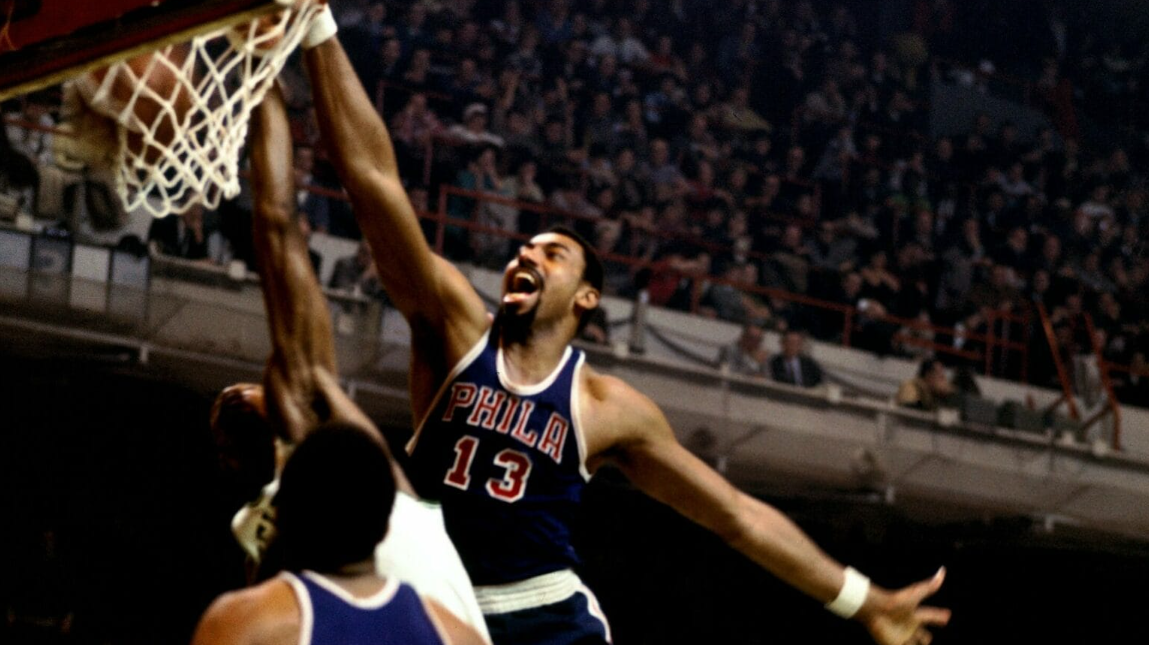
4. Battling Illness
As a very young child, Chamberlain dealt with a brutal bout of pneumonia which nearly killed him. The sickness made the future basketball star quite frail and even caused him to miss an entire school year.
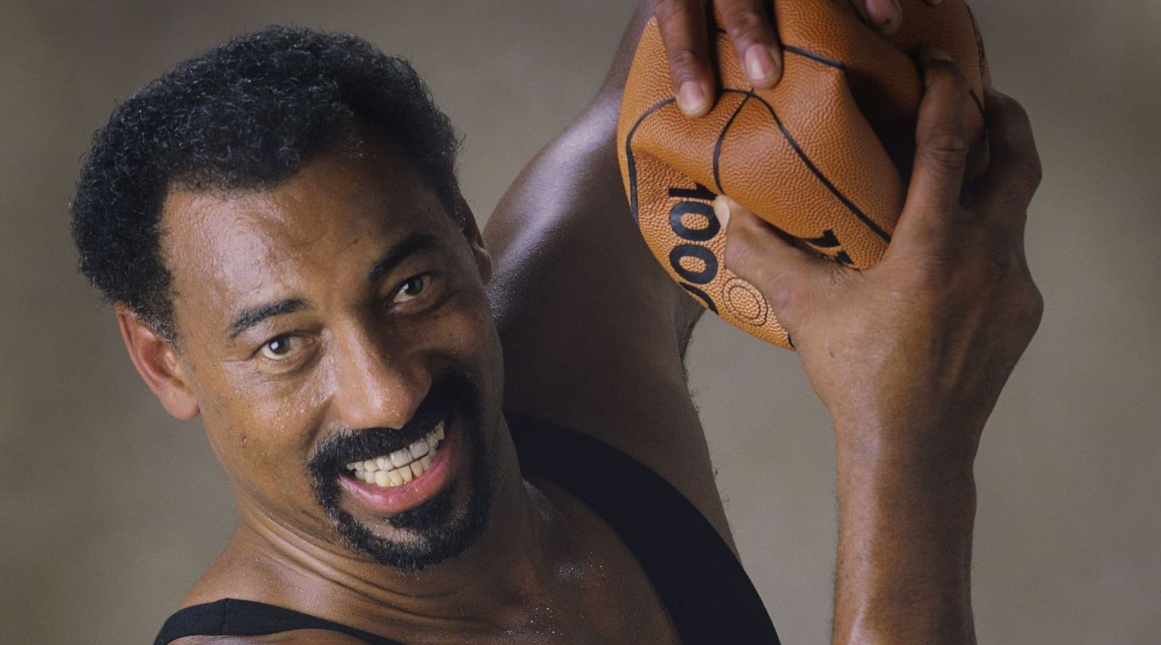
5. Not Fond of Nicknames
It was in high school where Chamberlain was given the famous nicknames that would stick with him for the rest of his life. Chamberlain reportedly didn’t like “Goliath” or “Wilt the Stilt,” but he did like “The Big Dipper.” “The Big Dipper” was apparently inspired by Chamberlain’s penchant for ducking his head underneath doorways to avoid hitting them.
6. Secondary School Star
With Philadelphia being a hoops hotbed, Chamberlain came to terms with his height and decided to shift his sporting attention to basketball at Overbrook High School in West Philadelphia (side fact: Will Smith attended high school years later). Chamberlain became a local, and eventually national, legend. During his final season with the Overbook Panthers, he had a three-game stretch where he recorded 74, 78, and 90 points. In his time with Overbook, Chamberlain led his team to two city championships and an overall win-loss record of 56-3.
7. Picking a College
Chamberlain’s legendary high school basketball career led him to field scholarship offers from nearly 200 colleges across the country. As an African-American, Chamberlain ignored schools in the South due to the continued practice of racial segregation. He also ignored offers from schools in New England and, seeking a fresh start and a new environment, he ruled out schools close to Philadelphia, which included universities in New York City.
At last, Chamberlain decided to go off to the Midwest and enroll at the University of Kansas, under the tutelage of famed basketball coach Phog Allen.
8. Big Man on Campus
At Kansas, Chamberlain continued to develop his game, build his legacy, and even find time to compete in the track. Unfortunately, he also experienced racial taunts from hostile away crowds. Chamberlain’s biggest accomplishment in college was leading Kansas to the 1957 National Championship Game. Although his team fell short to the University of North Carolina Tar Heels, Chamberlain was still named the tournament’s Most Outstanding Player.
9. Increasing Celebrity
Given a national spotlight, Chamberlain became a celebrity during his time with the Jayhawks. As a collegiate player, he was featured in popular magazines of the time, including Life, Time, Look, and Newsweek.
10. Leaving School Early
To combat Chamberlain’s dominant play, opposing teams devised various tactics to stop him, including double and triple-teaming, and holding the ball for long periods of time to deny Chamberlain chances at offense (the shot clock was not used in college basketball at the time). He also didn’t get along with Kansas's new coach Dick Harp, who replaced Phog Allen after he retired.
Growing increasingly frustrated and wanting to make money, Chamberlain decided to forego his senior year at Kansas. He made his announcement through an article in Look. The article earned him a cool $10,000, which at the time was more than the average NBA contract.
11. A Pre-NBA Pro Basketball Careers
The rules at the time prevented Chamberlain from entering the NBA directly after leaving college early. As a result, Chamberlain joined the Harlem Globetrotters—the entertaining traveling exhibition team. He played with legendary Globetrotters Meadowlark Lemon and Tex Harrison. In the year 2000, the Globetrotters retired Chamberlain’s #13 jersey.
12. Playing On Soviet Soil
Chamberlain was part of the Harlem Globetrotters team that went to the Soviet Union for a series of historic exhibition games in 1959. The series comprised of nine sold-out games at Moscow’s Lenin Stadium and was a sign of the improving of US-USSR relations. During the visit, Chamberlain and the Globetrotters met with then-Soviet Premier Nikita Khrushchev.
13. An Incredible Rookie Season
Chamberlain made his NBA debut on October 24, 1959, for his hometown Philadelphia Warriors. Despite being a rookie, Chamberlain became the league’s highest-paid player after signing a contract that paid him $30,000 per year (about $258,000 in today’s dollars). Chamberlain had an incredible rookie campaign. He averaged 37.6 points and 27 rebounds a game, which were both single-season records.
He won Rookie of the Year, Most Valuable Player, and the All-Star Game MVP. Not a bad first impression!
14. One Glaring Weakness
Chamberlain had a multi-faceted game. He was an incredible scorer, a dominant rebounder, great defender, and an exceptional passer for his position. However, his one weakness was free-throw shooting...and it was a pretty bad weakness. Amongst NBA players with at least 1,200 free throw attempts, Chamberlain is third-from-last, with a career free throw percentage of only 51.1%.
15. A Rebounding Machine
In a game for the Philadelphia Warriors against the Boston Celtics in the 1960-61 season, Chamberlain set the record for most rebounds in a single NBA game. The Big Dipper brought down a massive 55 boards in that game. The record still stands today and it is very unlikely to be ever broken.
16. Chamberlain’s Annus Mirabilis
A player scoring 50 points in a single game is a pretty notable and rare accomplishment. That’s why Chamberlain’s points per game average for the 1961-62 season are so stupefying. His average of 50.4 points per game is easily the highest in NBA history. Not to be outdone, he also averaged 25.7 rebounds per game and, perhaps most amazingly, he averaged 48.5 minutes per game.
Why is this impressive? As some of you may know, a regulation NBA game is only 48 minutes long. Chamberlain not only had to play all regular minutes, but also had to play deep into overtime many times to get that average.
17. The 100 Point Game
Chamberlain’s 1961-62 season is best remembered for one legendary game in particular. On March 2, 1962, in a game between the Philadelphia Warriors and the New York Knicks in Hershey, Pennsylvania, Chamberlain scored 100 points—the most points a single player has ever scored in an NBA game. Considering that entire teams often fail to make it to 100 points, it's a record beyond basketball comprehension.
The record was only seriously threatened once, when Los Angeles Lakers superstar Kobe Bryant dropped 81 points in a 2006 game against the Toronto Raptors. Adding to the mythical status of Wilt's game was how few people actually got to see it. For such a momentous event, it wasn't televised and was only attended by a small gathering of press.
18. Playing Under a Pseudonym
While still in high school, Chamberlain played semi-professional basketball under the name George Marcus. Chamberlain had to keep it a secret that he was playing for money, as the revelation would nullify his eligibility for the Amateur Athletic Union and the NCAA.
19. A Heartbreaking Loss
The lowest point of Chamberlain’s career was Game 7 of the 1969 NBA Finals, when his Lakers lost to his old rivals, Bill Russell and the Boston Celtics. The game was a tight affair and after Chamberlain appeared to tweak his knee while grabbing a rebound, he was benched in favor of Mel Counts. With Counts on the floor, the Lakers were able to narrow the lead. Chamberlain then asked his coach, Butch van Breda Kolff, to get back in the game with only a few minutes left.
However, van Breda Kolff refused, allegedly telling Chamberlain to "sit your big *** back down...we don't need you." The Lakers ended up losing by a score of 108-106. Chamberlain never forgave van Breda Kolff, and after learning that the Lakers were on the hunt for a new coach, van Breda Kolff resigned before he could be fired. He never coached another playoff game in his career.
20. Contemplating Early Retirement
Chamberlain almost gave up his NBA career after his rookie season. Chamberlain was tired of the constant aggressive double and triple-teaming deployed by opposition defenses, which he feared might entice him to lose his cool one day. He was eventually convinced to continue playing when Warriors owner Eddie Gottlieb upped Chamberlain’s annual salary to $65,000.
21. His First Championship
During the 1967 playoffs, Chamberlain finally vanquished his old foe Bill Russell, as his Philadelphia 76ers defeated the Boston Celtics in the Eastern Division Finals. This meant that he would play in the NBA Finals for the first time in his career, where Chamberlain would go up against his old team the Warriors (who had since moved to San Francisco).
In the Finals, Chamberlain and the Sixers won a hard-fought series, winning four games to two.
22. Headed to La La Land
Following another defeat to the Bill Russell and the Celtics in the 1967-68 playoffs, the Sixers decided to trade Chamberlain to the Los Angeles Lakers. It was a milestone move for Chamberlain, as he would make Los Angeles his primary home for the rest of his life.
23. Almost Going Toe-to-Toe With The Greatest
Following the 1971 season, Chamberlain challenged Muhammad Ali to a boxing bout. The match was supposed to take place in the summer of 1971 in the Astrodome in Houston. Chamberlain went so far as to get help from legendary trainer Cus d’Amato, but he eventually pulled out of the fight at the last minute.
24. Bringing a Title to Tinseltown
Chamberlain won his second and last NBA Championship with the Los Angeles Lakers in the 1971-72 season. In the Finals against the Knicks, Chamberlain battled a nagging hand injury to lead his team to victory in five games. Chamberlain would play one more year in the NBA—where his Lakers would once again face the Knicks in the Finals, though this time coming out on the losing end—before retiring.
25. Getting Into the Nightlife Business
During his playing time, Chamberlain owned and operated the Smalls Paradise nightclub in the Harlem neighborhood of New York City. Chamberlain renamed the club Big Wilt’s Smalls Paradise and reportedly spent 18 hours a day at the establishment.
26. A New Sporting Passion
With his basketball career behind him, Chamberlain turned his attention to another sport—volleyball. He was a founding board member of the newly established International Volleyball Association. He even appeared in a few games for the Seattle Smashers and was the MVP of one of the league’s All-Star games.
27. Possible Comeback
Even in retirement, Chamberlain still played basketball recreationally and would field offers to return to the game. The San Diego Conquistadors of the upstart American Basketball Association signed him to a player-coach contract in 1973, but a lawsuit from his old team the Lakers prevented him from playing. The Cleveland Cavaliers pursued him in 1980 and five years later, the New Jersey Nets offered a then-50-year-old Chamberlain a contract, but both times, Chamberlain declined.
28. Going Back to His Roots
In 1970, Chamberlain returned to his track roots by establishing Wilt’s Athletic Club, a track and field club based in Southern California. The most famous member of the club was a young Florence Griffith Joyner. This was before she became known as the fastest woman of all time for setting world records in the 100m and 200m.
She won three gold medals at the 1988 Seoul Olympics, and her records still stand to this day.
29. His Turn on the Silver Screen
Chamberlain made his Hollywood debut in the 1984 film Conan the Destroyer. Chamberlain played the character of Bombaata, the nemesis of the film’s title character, iconically played by Arnold Schwarzenegger.
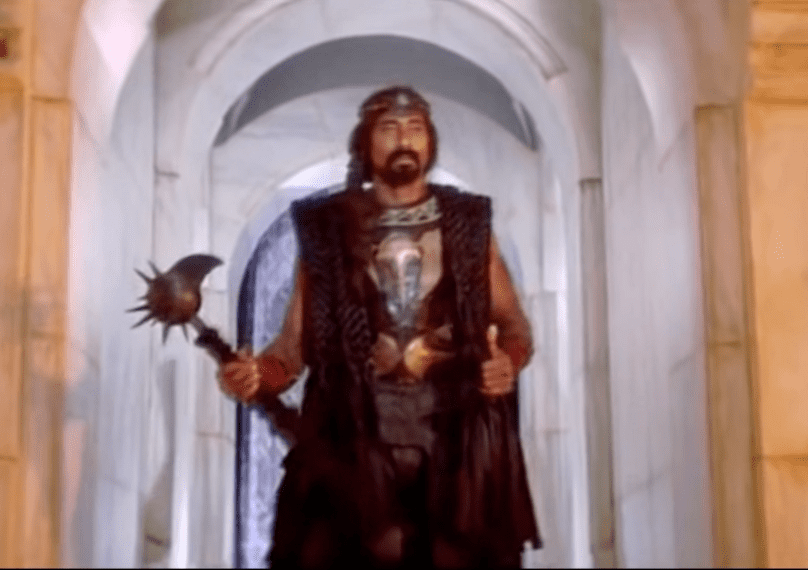 Conan the Destroyer (1984), Universal Pictures
Conan the Destroyer (1984), Universal Pictures
30. Forever Immortalized
Chamberlain was enshrined in the Naismith Memorial Basketball Hall of Fame in 1979, and in 1996, in honor of the NBA’s 50th anniversary, he was named as one of the league's 50 greatest players.
31. Changing the Rules to Curb His Dominance
Chamberlain’s dominant on-court play made the NBA institute a variety of rule changes. These included widening the painted area on the court, implementing offensive interference rules, and changes to free throw shooting and inbounding procedures.
32. One for the Record Books
Chamberlain holds the record for being the fastest player to reach 30,000 points in a career, doing so in 941 games (Michael Jordan, who’s second on the list, reached the mark in 960 games). At the end of his career, Chamberlain held the record for most career points with 31,419. However, his mark has since been passed by Kareem Abdul-Jabbar, Karl Malone, Kobe Bryant, LeBron James, Michael Jordan, and Dirk Nowitzki.
Chamberlain also holds the record for most career rebounds with 23,924. Perhaps most impressively though, he holds the record for most 30 point/30 rebound games with 124. To put it into perspective, all other NBA players combined have only done this 32 times. In all, Chamberlain holds 72 NBA records.
33. A Very Bold Claim
As a lifelong bachelor and infamous ladies man, Chamberlain became well known for a particular off-court statistic. In his 1991 autobiography, A View From Above, Chamberlain made the startling claim that he had had intimate relations with 20,000 women. Chamberlain’s claim drew both criticism and mockery (if you do the math, his claim does seem a little...unlikely). In his later years, however, Chamberlain discouraged and regretted his promiscuous lifestyle.
He told an interviewer, “With all of you men out there who think that having a thousand different ladies is pretty cool, I have learned in my life...that having one woman a thousand different times is much more satisfying.”
34. A Big Home for the Big Dipper
During his time as a Laker, Chamberlain began to build his dream home in the Los Angeles neighborhood of Bel-Air. The unique home, which he named Ursa Major as a nod to his nickname The Big Dipper, was designed by architect David Tenneson Rich. The house, which stood on a 2.5-acre parcel of land, overlooks the Bel-Air Reservoir. In 2018, Ursa Major hit the market for nearly $19 million.
35. The Death of Chamberlain
In his later years, Chamberlain began to suffer from a series of heart problems. On October 12, 1999, Chamberlain passed on from congestive heart failure. He was 63.
36. Establishing the Legend
As a teenager, Chamberlain spent his summer vacations working as a bellhop at the Kushter’s Hotel, a popular resort in New York's Catskill Mountains. In his off time, Chamberlain continued playing basketball at the resort, impressing guest Red Auerbach, who was the coach of the Boston Celtics that Chamberlain would have many run-ins with throughout his career.
Auerbach convinced the young Chamberlain to play a game of one-on-one with college star B.H. Born. Chamberlain absolutely dominated Born in their matchup. Born was so devastated by the loss that he decided to give up his dreams of playing in the NBA. Now that's what I call a beat down.
37. Sponsorship Deals
Like all great athletes, Chamberlain had a bevy of sponsorship deals. He appeared in a variety of television commercials for companies like TWA, American Express, Le Tigre Clothing, Drexel Burnham, Volkswagen, and Foot Locker.
38. A Disciplined Approach
Despite his tenacious brand of defense, Chamberlain never fouled out of an NBA game. Chamberlain was very proud of his disciplined approach to the game, and I’m sure his teammates were just as pleased.
39. Another Impressive Game
Chamberlain is one of only two players in NBA history to record a double triple-double—having 20 or more in three different statistical categories. This occurred in a game in 1968 when he recorded 22 points, 25 rebounds, and 21 assists. This feat was finally matched in 2019 by Oklahoma City Thunder star Russell Westbrook.
40. Chamberlain the Commuter
During his time playing for the Philadelphia Warriors and the Philadelphia 76ers, Chamberlain lived in New York City. Preferring the brighter lights of the Big Apple, Chamberlain had to make a two-hour commute from his home in Manhattan to games and practices in Philly.
41. His Greatest Rival
Before Bird-Magic or LeBron-Durant, there was Russell-Chamberlain. Chamberlain’s biggest on-court rival was Boston Celtics center Bill Russell. While Chamberlain had the far more impressive individual statistics, Russell had the greater team accomplishments. They met in the playoffs eight times and Russell’s Celtics were on the winning side seven of those times.
Russell also won 11 NBA Championship titles, while Chamberlain only won two. Off the court, the two had a good friendship, until a falling-out which was sparked by Russell’s accusation that Chamberlain gave up in the 1969 NBA Finals. They were not on speaking terms for nearly two decades, but were eventually able to patch things up.
When Chamberlain passed on, his nephew was instructed that Russell be one of the first individuals to be notified.
42. Partying the Night Before
One impressive tidbit regarding the legendary 100-point game was that Chamberlain spent the entire night before partying in New York City. On no sleep and nursing the beginnings of a hangover, Chamberlain boarded an 8 AM train to Philadelphia. In Philly, he met up with some buddies for a long lunch, which nearly caused him to miss the team bus to Hershey.
Thankfully, Chamberlain was able to make it in time for the game and set basketball history.
43. Secret Weapon
Chamberlain went to the free-throw line a whopping 32 times in his 100-point game. One would think this would seriously hurt his chances at racking up points, but Chamberlain had a trick up his sleeve that night: He shot his free-throws underhanded. An effective, yet embarrassing method, Chamberlain usually preferred to miss overhanded than risk ridicule with the granny shot.
On March 2nd, however, he stuck with the underhand, and ended up making 28 free-throws, which stood as the most-ever in an NBA game for over two decades.


